
- Feb 2, 2023

From Flaw to Strength: 5 Weaknesses For Your MBA Application
Updated: Feb 1

Some business schools explicitly ask for weaknesses in their written applications. For example, the INSEAD MBA application includes a strengths and weaknesses essay:
“Give a candid description of yourself (who are you as a person), stressing the personal characteristics you feel to be your strengths and weaknesses and the main factors which have influenced your personal development, giving examples when necessary in 500 words.”
While answering a question like this, you need to reflect on your work experience to identify a weakness that is, first off, undeniably a weakness, and second improvable. Think of something that is a trait or a skill that needs improvement. Humbly accept it and show how you’re working on improving it. Then pair it with a fierce strength of yours, especially something you’ve been applauded for at work, to balance it out and make a strong impression on AdCom.
But for those schools that don’t have a personal strengths and weaknesses essay, it’s also a question you should be ready to answer in your 1:1 interview , a mandatory part of most business school applications. These interviews are usually conducted by the AdCom or a second-year student and statistically you have a 50% chance of making it through to the school.
In these MBA interviews, a weakness question could come up in many ways, but according to our client feedback the two most common weakness interview questions are:
“Tell us about your biggest weakness”
“Tell us about a time you failed”
Don’t even think about brushing them off with a rubbish answer, such as “I’m a perfectionist”, thinking they won’t be able to see through you. Forget it. They definitely will. So, how do you identify a weakness for your essays and interviews? Let’s read further.
How to identify (a good) weakness
Admitting a weakness might look like it could harm your candidature. And yes, it could if you don’t approach the question in the right way, which is to find a genuine weakness and explain how you are working to improve it. This shows maturity, self-awareness and the ability to address an area for improvement. After all, if you were perfect already, you wouldn't need an MBA!
Instead of focusing on fundamental personality flaws, we suggest highlighting a skill that you are working to improve. To do this, make a list of the technical and non-technical skills that are required to succeed in your industry. Then, identify the skills you already possess and the ones you need to develop. Finally, select a skill that an MBA program could help you improve.
For example, if you find it difficult to share your innovative ideas with a room full of strangers, explain how this has affected you at work. Then talk about the actionable steps you have taken to improve this weakness. This could include taking on a hobby such as public speaking or acting. This approach demonstrates that you are action-oriented, have a growth-oriented mindset, are introspective and have the maturity to articulate your weaknesses. It also shows that you are not afraid of being vulnerable , a trait that is essential for success in an MBA program and in life.
Pro tip: One of the first steps we take with clients is to ask them to complete a Myers Briggs Type Indicator (MBTI) personality test. Using this, you can identify weaknesses typical of your personality type. You can take a free personality test at 16personalities.com.

Take an MBTI personality test to find the weaknesses typical of your personality type
Now that you understand how to choose a weakness and discuss it in your interview, check out five examples of personal weaknesses that you may want to use in your essays or interview.
5 personal weaknesses examples for MBA applications
1. I tend to overlook details
“My biggest weakness is that I am not naturally detail-oriented, and tend to focus more on the big picture. As a project manager in my current job, I once lost a significant deal due to overlooking crucial details in the contract. Since then, I’ve been working on improving my attention to detail. For instance, I now take detailed notes during meetings and review them afterwards to ensure I didn't miss anything important. I also make a point of double-checking my work before submitting it, and have been delegating some of my tasks to a colleague known for their attention to detail. I’ll continue to improve on this during my MBA by systematically checking coursework for myself and my study team."
2. I tend to be overly self-critical
“Being highly self-conscious, I sometimes struggle with self-criticism. I often find myself judging my thoughts and ideas, which leads me to doubt my skills and abilities. Because of this, I sometimes get stuck in a continuous procrastinating cycle. Fairly recently, I missed out on an important project at work because I was afraid to open up and share my ideas with my teammates. To improve on this weakness, I’ve been trying to be more mindful of my thoughts and practice self-compassion. I try to remind myself that it's normal to make mistakes and that everyone has unique strengths and weaknesses. I also try to reframe my negative thoughts and turn them into positives. Practicing meditation and mindfulness techniques has also helped me focus on the present and not get caught up in negative thoughts. Recently, I was able to present my ideas one at a time to a prospective client without getting too caught up in my head, by taking these small steps. He was so impressed by my presentation that he signed a new contract. This is the biggest client account I have onboarded in my current role.”
3. I struggle to multi-task
“I can struggle to manage different tasks at the same time. This especially became challenging when I took over as an Operations Specialist, where I led the implementation teams for 10 different tier-2 cities across India. With so much happening on various fronts, I sometimes failed to meet the deadline or could not resolve supply chain issues with different city teams. My manager gave me feedback to use a platform like 'Notion' to manage project timelines better. She also advised breaking tasks into smaller goals and set a to-do list for each day. I have also started to delegate wherever possible so that my team becomes more efficient and self-dependent. Since implementing these suggestions, I’ve certainly improved my ability to multi-task and have received great feedback.”
4. I lose interest during execution
“I’m the Ideas person in my team. When we’re marketing a new product in our agency, I’m the one who devises an innovative marketing strategy and creates effective action plans. I love making chart boards and step-by-step plans and using data visualization tech like Tableau. However, when it comes to executing our strategies, my mind often moves onto the next project before the last one is complete. In my post-MBA role of Marketing Manager at a startup, I’ll lead the in-house marketing team where I’ll need to oversee the execution of our strategies while also devising new strategies. During my MBA, I plan to take the Operations elective with professor XYZ to help manage this.”
5. I can be reluctant to speak up
“Being an introvert, I can be reserved in meetings and after-work networking gatherings. While working with new teams, it takes me time to warm up to my teammates and openly share my ideas. However, I have recently acknowledged this weakness and am working on becoming more comfortable in social settings. I go out of my way to attend networking events regularly, where I challenge myself to initiate conversations with new people. I have also joined the Toastmasters public speaking club to help me improve my confidence. I am determined to continue to put in the effort to become more outgoing and confident in social settings, as I know it will help me achieve my professional goals."
We hope these 5 examples of weaknesses help you understand how to constructively share your weakness with AdCom during your interview. If you need help preparing for your business school interview, why not book a 20-min chat with any of our consultants and explore how our team can help you prepare for your MBA interviews.
- How to apply for an MBA
Recent Posts
MBA Programs Offering GMAT/GRE Waivers in 2024
Help! I Don't Have a Typical MBA Career
How to Write a MBA Scholarship Essay 2024
_JPG.jpg)
Hi, I'm Sam. I'm the founder of Sam Weeks Consulting. Our clients get admitted to top MBA and EMBA programs.
Ranked #2 MBA Admissions Consultant of 2022
- May 12, 2022

Success Stories: How I got a $170,000 scholarship to NYU Stern MBA
- Apr 21, 2022

Why Does a Lawyer Need an MBA?

Oxford Saïd MBA Recommendation Questions 2023 - 2024

Duke Fuqua MBA Recommendation Questions 2023 - 2024

Recent Video
Mba essay guides.
.png)
Client Testimonials
Connect with us.


Sample MBA Essay - What is your greatest weakness
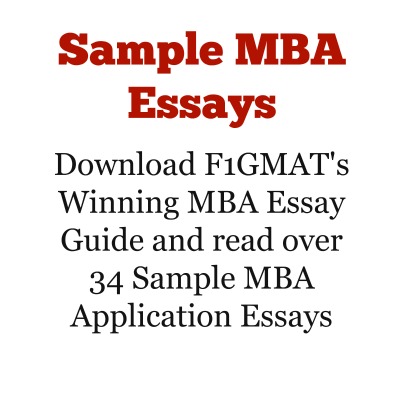
Winning MBA Essay Guide = Harvard + Stanford + Wharton + Columbia + Booth + MIT + Kellogg + Darden + Yale + NYU Stern + Haas + Ross + Duke Fuqua + INSEAD + LBS + Tuck Essay Tips and 245+ Sample Essays + Leadership Narratives + Editing Techniques + Storytelling Tips + Video Essay Scripts + Curriculum Analysis of each MBA program for the Why MBA Question
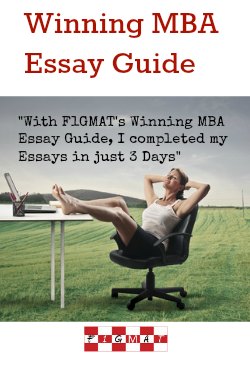
- Harvard MBA Essay Guide (20 Sample Essays) (New!)
- Stanford MBA Essay Guide (24 Sample Essays) (New!)
- Columbia MBA Essay Guide (21 Sample Essays) (New!)
- Wharton MBA Essay Guide (15 Sample Essays) (New!)
- INSEAD MBA Essay Guide (19 Sample Essays) (New!)
- Darden MBA Essay Guide (21 Sample Essays) (New!)
- Yale SOM MBA Essay Guide (15 Sample Essays) (New!)
- Tuck MBA Essay Guide (15 Sample Essays) (New!)
- Haas MBA Essay Guide (18 Sample Essays) (New!)
- NYU Stern MBA Essay Guide (15 Sample Essays + 6 Examples - Visual Essay) (New!)
- LBS MBA Essay Guide (6 Sample Essays) (New!)
- MIT Sloan MBA Essay Guide (6 Sample Cover Letters + 3 Sample Video Statement Scripts + 3 Sample Optional Essays) (New!)
- Kellogg MBA Essay Guide (11 Sample Essays) (New!)
- Chicago Booth MBA Essay Guide (12 Sample Essays) (New!)
- Ross MBA Essay Guide (31 Sample Essays) (New!)
- Duke Fuqua MBA Essay Guide (10 Sample Essays + Two 25 Random Things Samples) (New!)
- Cambridge MBA Essay Guide (12 Sample Essays) (New!)
- Winning MBA Essay Guide (Harvard + Stanford + Wharton + Columbia + Booth + MIT + Kellogg + Darden + Yale + NYU Stern + Haas + Ross + Duke Fuqua + INSEAD + LBS + Tuck) (245+ Sample Essays) (New!)
F1GMAT's Services
- MBA Application Review (Essay Editing + Resume Editing + Recommendation Letters + All Application Questions)
- Essay Editing (Essays and All Application Questions)
- One Essay Editing (One Essay/One Cover Letter)
- Career Planning and Detailed Profile Evaluation (Find career goals and courses/schools to match your aspirations)
- One School Recommendation Letter Editing Service
- One Supervisor Recommendation Letter Editing Service
Stanford MBA Essay Guide (2024 Entering Class)
- Sample Why Stanford MBA Essay (Consulting)(396 words)
- Sample Why Stanford MBA Essay (Tech Entrepreneur) (389 words)
- Sample Why Stanford MBA: Career Switching (Finance to Green Energy Consulting) (388 Words)
- Sample Why Stanford MBA: Career Switching (Private Equity to Operations) (384 Words)
- Sample Why Stanford MBA: Career Switching (Industry and Function – Oil & Gas to Consulting in Operations) (389 Words)
- Sample Why Stanford MBA: Career Switching (Design Engineer in Automobiles to Managing the Products of the Future) (391 Words)
- Sample Why Stanford MBA: Career Switching (Accounting to Private Equity) (395 Words)
- Sample Why Stanford MBA: Dual Degree (MBA and Public Policy) (380 Words)
- Sample Why Stanford MBA: Dual Degree (Investment Banking to Venture Capital) (393 Words)
- Sample Why Stanford MBA: NASA Missions to Mitigating Risks of Global Flooding (393 Words)
- Sample Essay A: What matters most to you, and why? (613 Words)(Balance in Life)
- Sample Essay A: What matters most to you, and why? (645 Words)(Veterans PTSD and Healing)
- Sample Essay A: What matters most to you, and why? (649 Words)(Vulnerability and Learning)
- Sample Essay A: What matters most to you, and why? (642 Words)(Education and Investment)
- Sample Essay A: What matters most to you, and why? (602 Words)(Freedom and Commitment)
- Sample Essay A: What matters most to you, and why? (646 Words)(Savor Every Moment and Be Present)
- Sample Essay A: What matters most to you, and why? (632 Words)(Power of Restlessness)
- Sample Essay A: What matters most to you, and why? (619 Words)( The Slums, A Tragedy and the Search for a Systemic Solution)
- Sample Essay A: What matters most to you, and why? (640 Words)(Privilege to Serving the Most Vulnerable)
- Sample Essay A: What matters most to you, and why? (Generative AI, Bias, and Safety) (649 Words)
- Sample Essay A: What matters most to you, and why? (Truth from Interpreting Right, Left, and Centre Narratives) (648 Words)
- Sample Stanford MBA Positive IMPACT Optional Essay (Flexible Hours for Working Mothers)(200 Words)
- Sample Stanford MBA Positive IMPACT Optional Essay (Cross-Functional Collaboration to Mitigate a Toxic Culture) (192 Words)
- Sample Stanford MBA Positive IMPACT Optional Essay (Introduced Analytics for monitoring performance) (200 Words)
Download Stanford MBA Essay Guide (2024 Entering Class) (24 Sample Essays)
Harvard MBA Essay Guide (2024 Entering Class)
- Sample Harvard MBA Essay – The Power of Community (Private Equity Applicant) (781 Words)
- Sample Harvard MBA Essay – Entrepreneurship as an Identity and supporting minority Entrepreneurs (664 Words)
- Sample Harvard MBA Essay – Following Passion and consciously challenging oneself (711 Words)
- Sample Harvard MBA Essay – Life Starts at No (618 Words)
- Sample Harvard MBA Essay – Establishing a Cooperative and Transforming Rural Telecom (695 Words)
- Sample Harvard MBA Essay – Small Business Values during COVID crisis (852 Words)
- Sample Harvard MBA Essay – Military and the search for IMPACT (826 Words)
- Sample Harvard MBA Essay – Numbers to Healthcare Entrepreneurship (820 Words)
- Sample Harvard MBA Essay – The American Dream and Harvard’s Peers (662 Words)
- Sample Harvard MBA Essay - Volunteering (Marketing in Volunteering) (Mental Health Awareness) (758 Words)
- Sample Harvard MBA Essay - Stoic Disregard for Setbacks and value of Freedom (636 Words)
- Sample Harvard MBA Essay – Consulting vs. the Power of Data (535 Words)
- Sample Harvard MBA Essay – Guilt of working in the Oil & Gas Industry (592 Words)
- Sample Harvard MBA Essay – Breaking Away from Family Business (607 Words)
- Sample Harvard MBA Essay – Trauma, Healing and Finding Authentic Self (843 Words)
- Sample Harvard MBA Essay – Crypto As a Tool for Good (687 Words)
- Sample Harvard MBA Essay – Finding Creative Solution in Scarcity (834 Words)
- Sample Harvard MBA Essay – Passion vs. Talent (882 Words)
- Sample Harvard MBA Essay – Starting Over Again (861 Words)
- Sample Harvard MBA Essay – Gaming for Good (840 Words)
Download Harvard MBA Essay Guide (2024 Entering Class) (20 Sample Essays)
Chicago Booth MBA Essay Guide (2024 Entering Class)
- Sample Booth Goals Essay #1: Oil & Gas to Consulting (474 Words)
- Sample Booth Goals Essay #2: Social IMPACT to Marketing (469 Words)
- Sample Booth Goals Essay #3: Accounting to Entrepreneurship (490 Words)
- Sample Booth Goals Essay #4: Technology (Programming to Product Development) (493 Words)
- Sample Booth Goals Essay #5: Media Sales to Consulting (Food and Beverages Industry) (522 Words)
- Sample Booth Goals Essay #6: Economic Development to IMPACT investing (586 Words)
- Sample Booth Tell Us who you are:Father’s Restaurant Business and Leadership (451 Words)
- Sample Booth Tell Us who you are: Teaching and Scientific Temperament as a Virtue (654 Words)
- Sample Booth Tell Us who you are: Learning from Tragedy (610 Words)
- Sample Booth Tell Us who you are: Risk Taking and Learning (Reimagining the Food Supply Chain)(628 Words)
- Sample Booth Tell Us who you are: Nature or Nurture (Hunting and Conservationism) (497 Words)
- Sample Booth Tell Us who you are: Single Parent and Entrepreneurship (631 Words)
Download Chicago Booth MBA Essay Guide (2024 Entering Class) (12 Sample Essays)
Columbia MBA Essay Guide (2024 Entering Class)
- Sample Columbia Goals Essay 1: Enterprise Technology to Consumer Marketing (495 Words)
- Sample Columbia Goals Essay 2: Healthcare (Finance to Consulting) (499 Words)
- Sample Columbia Goals Essay 3: FinTech (Product Manager to Strategy) (473 Words)
- Sample Columbia Goals Essay 4: IMPACT Investing (Accounting to IMPACT Investing) (447 Words)
- Sample Columbia Goals Essay 5: Digital Strategy – Media Technology (Journalism to Media Tech) (454 Words)
- Sample Columbia Goals Essay 6: Scaling Boutique Investment Management Firm (492 Words)
- Sample Columbia PPIL Essay: Onboarding a non-traditional Candidate (243 Words)
- Sample Columbia PPIL Essay: Changing Biases in the Algorithm (244 Words)
- Sample Columbia PPIL Essay: Improving Women’s Success Potential (Oil & Gas Industry) (245 Words)
- Sample Columbia PPIL Essay: Recommending Unionization (Railway Project) (250 Words)
- Sample Columbia PPIL Essay: Recommending Social Media Controls (Liberal Applicant with Conservative peers) (247 Words)
- Sample Columbia Fit Essay: Value from NYC (246 Words)
- Sample Columbia Fit Essay: Auto Manufacturer (Family Business – Value from EIR) (249 Words)
- Sample Columbia Fit Essay: Unique Insights from Mentors (250 Words)
- Sample Columbia Fit Essay: Strategic Direction for a Once in a lifetime Opportunity (249 Words)
- Sample Columbia Fit Essay: Real Estate Development with ESG Goals and Columbia EIR’s Expertise (242 Words)
- Sample Columbia MBA Leader I admire Essay #1 (Tech Entrepreneur) (286 Words)
- Sample Columbia MBA Leader I admire Essay #2 (Father) (275 Words)
- Sample Columbia MBA Leader I admire Essay #3 (Mother) (279 Words)
- Sample Columbia MBA Leader I admire Essay #4 (Math Teacher) (289 Words)
- Sample Columbia MBA Leader I admire Essay #5 (Co-Founder) (285 Words)
Download Columbia MBA Essay Guide (2024 Entering Class) (21 Sample Essays)
Wharton MBA Essay Guide (2024 Entering Class)
- Sample Wharton MBA Essay 1: What do you hope to gain professionally from the Wharton MBA? (Consulting to Finance) (493 words)
- Sample Wharton MBA Essay 2: What do you hope to gain professionally from the Wharton MBA? (VC to Consulting (Healthcare))(477 Words)
- Sample Wharton MBA Essay 3: What do you hope to gain professionally from the Wharton MBA? (Business Development to Finance (Non-Profit in Energy))(495 Words)
- Sample Wharton MBA Essay 4: What do you hope to gain professionally from the Wharton MBA? (Digital Marketing to Marketing Strategy) (498 Words)
- Sample Wharton MBA Essay 5: What do you hope to gain professionally from the Wharton MBA? General Management (Consulting – Building a Strong Management Fundamentals and International Perspective)(498 Words)
- Sample Wharton MBA Essay 6: What do you hope to gain professionally from the Wharton MBA? IMPACT Investing (Experience Outside Govt. Organizations)(490 Words)
- Sample Wharton MBA Essay 7: What do you hope to gain professionally from the Wharton MBA? (Incubation & Angel Investing to Venture Capital) (471 Words)
- Sample Wharton MBA Essay 8: What do you hope to gain professionally from the Wharton MBA? (Tech Entrepreneur to Product Manager with Strong Business Fundamentals) (497 Words)
- Sample Wharton MBA Essay 9: Math Tutoring and Experimental music’s value for the Wharton Community (388 Words)
- Sample Wharton MBA Essay 10: Non-Profit – Obesity Epidemic and Healthy Lifestyle at Wharton (398 Words)
- Sample Wharton MBA Essay 11: Non-Profit – Energy-Efficient Offices for Start-ups and value of Design Thinking in the Wharton Community (392 Words)
- Sample Wharton MBA Essay 12: Non-Profit (Personalized Education for Low-Income Students) (397 Words)
- Sample Wharton MBA Essay 13: Process Innovation in Investment Banking (360 Words)
- Sample Wharton MBA Essay 14: Radical Solution for the Hispanic Community in Philadelphia (400 Words)
- Sample Wharton MBA Essay 15: Climate Change – Shaming to Inclusive Strategy with Empathy (392 Words)
Download Wharton MBA Essay Guide (2024 Entering Class) (15 Sample Essays)
MIT Sloan MBA Essay Guide (2024 Entering Class)
- Sample Cover Letter – Technology to Consulting (284 Words)
- Sample Cover Letter – Healthcare Entrepreneurship (297 Words)
- Sample Cover Letter – Consulting to Technology (298 Words)
- Sample Cover Letter – Wealth Management to FinTech (299 Words)
- Sample Cover Letter – Manufacturing to Consulting (Retail) (299 Words)
- Sample Cover Letter – Strategy to Consulting (297 Words)
- Sample Video Statement – Technology Consultant with the ambition to transform Education (161 Words)
- Sample Video Statement - Accounting Professional with a unique patent (142 Words)
- Sample Video Statement – Oil & Gas Professional with a passion for Flying and Exploration(152 Words)
- Sample MIT World Shaped Who You Are Essay – Homeschooling (248 Words)
- Sample MIT World Shaped Who You Are Essay – War Trauma (242 Words)
- Sample MIT World Shaped Who You Are Essay – Military Upbringing (242 Words)
Download MIT MBA Essay Guide (2024 Entering Class) (12 Sample Cover Letters and Essays)
Haas MBA Essay Guide (2024 Entering Class)
- Sample Haas What Makes you feel Alive (Start-up in Cryptocurrency) (291 Words)
- Sample Haas What Makes you feel Alive (Design as a tool for Change) (296 Words)
- Sample Haas What Makes you feel Alive (Flying and AI in Healthcare)(299 Words)
- Sample Haas What Makes you Feel Alive (Learning, Failing and Prototyping)(289 Words)
- Sample Haas What Makes you feel Alive (Affordable Education and Satellite Technology) (271 Words)
- Sample Haas What Makes you feel Alive (Future-Proofing the Underprivileged) (Climate Change) (299 Words)
- Sample Haas Career Goals Essay (Technology Consulting to Strategy) (284 Words)
- Sample Haas Career Goals Essay (Product Management to Venture Capital in AI) (293 Words)
- Sample Haas Career Goals Essay (Corporate Finance to Consulting) (292 Words)
- Sample Berkeley Haas Embody Four Defining Principles Video Essay (Team Building – Technology) (Questioning Status Quo & Beyond Yourself) (277 Words)
- Sample Berkeley Haas Embody Four Defining Principles Video Essay (Student Always) (Adaptability, IMPACT Oriented and Intellectual Curiosity) (276 Words)
- Sample Berkeley Haas Embody Four Defining Principles Video Essay (Beyond Yourself) (Adaptability, IMPACT Oriented and Intellectual Curiosity) (247 Words)
- Sample Berkeley Haas Embody Four Defining Principles Video Essay (Confidence Without Attitude) (Adaptability, and IMPACT Oriented) (287 Words) 50
- Sample Berkeley Haas Embody Four Defining Principles Video Essay (Question the Status Quo) (Adaptability, Leveraging Power for Good and Impact-Oriented) (216 Words)
- Sample Berkeley Haas Embody Four Defining Principles Video Essay (Beyond Yourself) (Adaptability and Leveraging Power for Good) (294 Words)
- Sample Haas MBA Essay on DEI (Building Inclusive Teams to Address Domestic Violence Among Native Americans) (300 Words)
- Sample Haas MBA Essay on DEI (Silicon Valley and Black Entrepreneurs) (295 Words)
- Sample Haas MBA Essay on DEI (DEI in Design) (298 Words)
Download Haas MBA Essay Guide (2024 Entering Class) (18 Sample Essays)
Yale SOM MBA Essay Guide (2024 Entering Class)
- Sample Yale SOM Commitment MBA Essay: Business Development (Mobile Phone Start-Up)(474 Words)
- Sample Yale SOM Commitment MBA Essay: Investment Banking and Teaching (499 Words)
- Sample Yale SOM Commitment MBA Essay: Consulting and Listening (413 Words)
- Sample Yale SOM Commitment MBA Essay: Technology and Commitment to Learning (438 Words)
- Sample Yale SOM Commitment MBA Essay: Marketing (489 Words)
- Sample Yale SOM Commitment MBA Essay: Entrepreneurship (497 Words)
- Sample Yale SOM Commitment MBA Essay: IMPACT Investing (479 Words)
- Sample Yale SOM Commitment MBA Essay: Oil & Gas to Clean Energy (Consulting) (435 Words)
- Sample Yale SOM Commitment MBA Essay: Angel Investing and Rural Entrepreneurship (490 Words)
- Sample Yale SOM Community MBA Essay: Mental Health and Fitness Community(498 Words)
- Sample Yale SOM Community MBA Essay: Neighborhood as a Community (496 Words)
- Sample Yale SOM Community MBA Essay: Library as a Community Space (489 Words)
- Sample Yale SOM Significant Challenge MBA Essay: Scarcity to Growth Mindset (486 Words)
- Sample Yale SOM Significant Challenge MBA Essay: COVID-19 Vaccine Development (498 Words)
- Sample Yale SOM Significant Challenge MBA Essay: Leadership in Startup to Leadership in Fortune 500 (496 Words)
Download Yale MBA Essay Guide (2024 Entering Class) (15 Sample Essays)
Ross MBA Essay Guide (2024 Entering Class) Prompt 1: I want people to know that I
- Sample MBA Essay: Finance Professional who was a former member of a rock band (89 Words)
- Sample MBA Essay: Marketing Professional with a hidden talent to do Impression (80 Words)
- Sample MBA Essay: Life Philosophy through the prism of an Entrepreneurial failure (88 Words)
- Sample MBA Essay: Overcoming the Fear of Speaking in front of an Audience (97 Words)
- Sample MBA Essay: Communicating Inconvenient Truth (99 Words)
Prompt 2: I made a difference when I
- Sample MBA Essay: Consulting for a Pharma Giant (Made a Difference) (97 Words)
- Sample MBA Essay: Three-Level Sanitation Campaign (95 Words)
- Sample MBA Essay: Water Conservation Kit (84 Words)
- Sample MBA Essay: Book Donation and Its IMPACT (91 Words)
- Sample MBA Essay: Parental Leave and Flexible Time (96 Words)
Prompt 3: I was aware that I was different when
- Sample MBA Essay: I am aware that I am different (Leadership and Culture) (91 Words)
- Sample MBA Essay: I am aware that I am different (Technology Project and Last-minute change) (91 Words)
- Sample MBA Essay: I am aware that I am different (Making Business metrics relevant to a Creative team) (83 Words)
- Sample MBA Essay: I am aware that I am different (Feedback seeking) (81 Words)
- Sample MBA Essay: I am aware that I am different (Challenging Established Way of Thinking) (100 Words)
Prompt 1: I am out of my comfort zone when
- Sample MBA Essay: Out of my comfort zone(extra-curricular) (85 Words)
- Sample MBA Essay: Out of my comfort zone (Daily Science Show) (100 Words)
- Sample MBA Essay: Simplifying Operations for Manufacturing (extra-curricular) (88 Words)
Prompt 2: I was humbled when
- Sample MBA Essay: Losing client (96 Words)
- Sample MBA Essay: Misreading Market Conditions (88 Words)
- Sample MBA Essay: Strategic Planning vs. Tactical Dominance in Chess (93 Words)
Prompt 3: I was challenged when
- Sample MBA Essay: I was challenged when (Change in Scope) (100 Words)
- Sample MBA Essay: I was challenged when (Team Failed) (98 Words)
Pick One Thing from your Resume and Tell us More
- Sample Essay – Pick One Thing from your resume and tell us more (Consulting for Small Business During COVID) (100 Words)
- Sample Essay – Pick One Thing from your resume and tell us more (Negotiating Design Changes – Cross-functional and Global communication) (100 Words)
- Sample Essay – Pick One Thing from your resume and tell us more (Entrepreneurship) (100 Words)
- Sample Essay – Pick One Thing from your resume and tell us more (Event Organization – During COVID) (99 Words)
- Sample Essay – Pick One Thing from your resume and tell us more (First Job – Career Switcher BA in English to Investment Management) (100 Words)
Short-Term Goals Essay
- Sample Essay – Short-term Goals and why the goal is the right choice for you (Private Investment as a Tool for Change) (150 Words)
- Sample Essay – Short-term Goals and why the goal is the right choice for you (Education to Consulting) (150 Words)
- Sample Essay – Short-term Goals and why the goal is the right choice for you (Software Development to Sales to Marketing) (148 Words)
Download Ross MBA Essay Guide (2024 Entering Class) (31 Sample Essays)
Darden MBA Essay Guide (2024 Entering Class)
- Sample Darden MBA Essay – About you Not in Resume (100 Words) (Near Death Experience)
- Sample Darden MBA Essay – About you Not in Resume (100 Words) (Passion and Networking)
- Sample Darden MBA Essay – About you Not in Resume (100 Words) (Persistence)
- Sample Darden MBA Essay – About you Not in Resume (95 Words) (Climate Change – A Uniting theme)
- Sample Darden MBA Essay – About you Not in Resume (96 Words) (Science Fiction)
- Sample Darden MBA Essay – Inclusive Leadership (Revamping Recruitment Process) (298 Words)
- Sample Darden MBA Essay – Inclusive Leadership (Obesity and Hunger) (Rural America) (272 Words)
- Sample Darden MBA Essay – Inclusive Leadership (Decoding Vaccine Hesitation) (298 Words)
- Sample Darden MBA Essay – Inclusive Leadership (Team Diversity)(297 Words)
- Sample Darden MBA Essay – Inclusive Leadership (Interpreting a foreign culture) (258 Words)
- Sample Darden MBA Essay – Leadership (First Leadership Lesson) (289 Words)
- Sample Darden MBA Essay: Short-term Post-MBA career goal and align long-term vision (197 words) (Technology to Consulting and Boutique Consulting)
- Sample Darden MBA Essay: Short-term Post-MBA career goal and align long-term vision (200 words) (Product Management and CEO)
- Sample Darden MBA Essay: Short-term Post-MBA career goal and align long-term vision (200 words) (Investment Banking to Private Equity)
- Sample Darden MBA Essay: Short-term Post-MBA career goal and align long-term vision (199 words) (Strategy Consulting – Change in Industry)
- Sample Darden MBA Essay: Short-term Post-MBA career goal and align long-term vision (197 words) (Operations to Corporate Finance)
- Sample Essay – Where you want to go with Darden (47 Words) (Uganda)
- Sample Essay – Where you want to go with Darden (49 Words) (Sweden)
- Sample Essay – Where you want to go with Darden (48 Words) (China)
- Sample Essay – Where you want to go with Darden (49 Words) (Israel)
- Sample Essay – Where you want to go with Darden (50 Words) (Germany)
Download Darden MBA Essay Guide (2024 Entering Class) (21 Sample Essays)
Duke Fuqua MBA Essay Guide (2024 Entering Class)
- Sample Duke Fuqua Post-MBA Career Goals (90 Words) (Product Marketing for FinTech start-up)
- Sample Duke Fuqua Post-MBA Career Goals (98 Words)(Financial Consulting to Management Consulting)
- Sample Duke Fuqua Post-MBA Career Goals (100 Words) (IB to Entrepreneurship)
- Sample Duke Fuqua Post-MBA Career Goals (95 Words) (ML to Marketing)
- Sample Duke Fuqua Post-MBA Career Goals (100 Words) (Healthcare to Retail)
- 25 Random Things: Chinese Female Engineer
- 25 Random Things: Indian Product Manager with Strong Community Engagement
- Sample Duke Fuqua Essay: The Fuqua community and you (Consulting) (Max 1 Page) (279 Words)
- Sample Duke Fuqua Essay: The Fuqua community and you (Max 1 Page) (Education Club) (295 Words)
- Sample Duke Fuqua Essay: The Fuqua community and you (Performance-Based Micropayments) (Max 1 Page) (256 Words)
- Sample Duke Fuqua Essay: The Fuqua community and you (Transforming Grant Making for a Family Foundation) (Max 1 Page) (300 Words)
- Sample Duke Fuqua Essay: The Fuqua community and you (Addressing Bias in Patient Experience) (Max 1 Page) (299 Words)
Download Duke Fuqua MBA Essay Guide (2024 Entering Class) (12 Sample Essays)
NYU Stern MBA Essay Guide (2024 Entering Class)
- Sample NYU Stern Essay: Short-Term Career Goals (150 Words) (Finance)
- Sample NYU Stern Essay: Short-Term Career Goals (146 Words) (Consulting)
- Sample NYU Stern Essay: Short-term Career Goals (148 Words)(Product Management)
- Sample NYU Stern Essay: Short-Term Career Goals (149 Words)(Marketing Consulting – Fortune 500 New Media Companies)
- Sample NYU Stern Essay: Short-Term Career Goals (150 Words)(Retail Family Business to Luxury)
- Sample NYU Stern Change Essay: Dare It (Finance Candidate – Immigrant Family) (350 Words)
- Sample NYU Stern Change Essay: Dare It (Communication Gap Around Mandate to Return to Office – Investment Banker) (347 Words)
- Sample NYU Stern Change Essay: Dream It (Consultant – Understanding long-term Goal and Personal Fears) (334 Words)
- Sample NYU Stern Change Essay: Dream It (EdTech Non-Profit Serving Cincinnati) (349 Words)
- Sample NYU Stern Change Essay: Drive It (Entrepreneurial Thinking – Fortune 500 Company)(340 Words)
- Sample NYU Stern Change Essay: Drive It (Sports Injury to Media Startup)(348 Words)
- Sample NYU Stern Change Essay: Empower It (Healthy Eating for SNAP beneficiaries)(347 Words)
- Sample NYU Stern Change Essay: Empower It (FinTech and Behavioral Metrics in Non-Profit)(346 Words)
- Sample NYU Stern Change Essay: Manifest It (Helping Junior Bankers Manage Mental & Physical Health) (338 Words)
- Sample NYU Stern Change Essay: Manifest It (Addressing Homelessness Among Teenagers in Baltimore) (346 Words)
Download NYU Stern MBA Essay Guide (2024 Entering Class) (15 Sample Essays + 6 Visual Essay Examples)
Kellogg MBA Essay Guide (2024 Entering Class)
- Sample Essay 1: Demonstrated Leadership, the challenges you faced and Skills Used (Marketing) (425 Words)
- Sample Essay 2: Demonstrated Leadership, the challenges you faced and Skills Used (Technology) (450 Words)
- Sample Essay 3: Demonstrated Leadership, the challenges you faced and Skills Used (Non-Profit) (441 Words)
- Sample Essay 4: Demonstrated Leadership, the challenges you faced and Skills Used (Product Manager) (437 Words)
- Sample Essay 5: Demonstrated Leadership, the challenges you faced and Skills Used (Addressing IMPLICIT Biases IN VC Community) (447 Words)
- Sample Essay 6: Demonstrated Leadership, the challenges you faced and what you learned (Leadership in Digitization) (447 Words)
- Sample Essay #1: Diverse Leaders. Enrich Kellogg Community Essay? (Inclusive Hiring) (440 Words)
- Sample Essay #2: Diverse Leaders. Enrich Kellogg Community Essay? (Courage and Changing a Corrupt Culture) (440 Words)
- Sample Essay #3: Diverse Leaders. Enrich Kellogg Community Essay? (Empathetic Intervention and Consulting) (440 Words)
- Sample Essay #4: Diverse Leaders. Enrich Kellogg Community Essay? (Creative Leadership and Technology) (440 Words)
- Sample Essay #5: Diverse Leaders. Enrich Kellogg Community Essay? (Open Mindedness - Team Management and Sales Call) (440 Words)
Download Kellogg MBA Essay Guide (2024 Entering Class) (11 Sample Essays)
Tuck MBA Essay Guide (2024 Entering Class)
- Sample Why Tuck MBA Essay One: Oil & Gas to Sustainability (288 Words)
- Sample Why Tuck MBA Essay Two: Marketing to Branding (284 Words)
- Sample Why Tuck MBA Essay Three: Investment Banking to Consulting (263 Words)
- Sample Why Tuck MBA Essay Four: VC to Consulting (291 Words)
- Sample Why Tuck MBA Essay Five: Technology to Research to General Management (281 Words)
- Sample Tuck Who you are Essay One: YouTube Channel and Creative Video Editing (287 Words)
- Sample Tuck Who you are Essay Two: Early Education and Storytelling (297 Words)
- Sample Tuck Who you are Essay Three: Music as a Healer (294 Words)
- Sample Tuck Who you are Essay Four: Breaking AI’s Filter Bubble (289 Words)
- Sample Tuck Who you are Essay Five: Transforming Culture to Empower Women Professionals (295 Words)
- Sample Tuck Meaningfully contributed sense of inclusion - YouTube Competitor (291 Words)
- Sample Tuck Meaningfully contributed sense of inclusion - Ethical Mistake (Second chance) (299 Words)
- Sample Tuck Meaningfully contributed sense of inclusion - Deal Novice in Billion $ Transaction (293 Words)
- S ample Tuck Meaningfully contributed sense of inclusion - Xenophobia (279 Words)
- Sample Tuck Meaningfully contributed sense of inclusion - Overcoming personal Challenges of a teammate as a Manager (282 Words)
Download Tuck MBA Essay Guide (2024 Entering Class) (15 Sample Essays)
INSEAD MBA Essay Guide (2024 Entering Class)
- Sample Essay 1: Summarize Current job Nature of work Major Responsibilities (200 Words)
- Sample Essay 2: Next Position if Remain in Same Company (198 Words)
- Sample Essay 3: Description of your Career since Graduating University (183 Words)
- Sample Essay 4: Short-Term and Long-Term Career Aspiration (Technology to Consulting) (200 Words)
- Sample Essay 5: Candid Description, Strengths & Weaknesses (Marketing Lead) (500 Words)
- Sample Essay 6: Candid Description, Strengths & Weaknesses (Consulting to Product Development) (491 Words)
- Sample Essay 7: Achievements and Failures (399 Words) (Technology Consultant)
- Sample Essay 8: Achievement and Failure (397 Words) (International Relations) (Negotiations)
- Sample Essay 9: Achievement and Failure (395 Words) (Woman and Non-Traditional background in IB)
- Sample Essay 10: Achievement and Failure (394 Words) (VC)
- Sample Essay 11: Extra-Curricular and How enriched you are (274 Words) (Hiking and Vlogging)
- Sample Essay 12: Extra-Curricular and How enriched you are (296 Words) (Improv Acting)
- Sample Essay 13: Extra-Curricular and How enriched you are (292 Words) (NASA and Scientific Thinking)
- Sample Essay 14: Extra-Curricular and How enriched you are (299 Words) (M&A and Orchestra)
- Sample INSEAD Video Essay 15 – What do you know about INSEAD MBA (183 Words)
- Sample INSEAD Video Essay 16 – Response to Team’s Underperformance (176 Words)
- Sample INSEAD Video Essay 17 – Work well with a person with differing opinion (169 Words)
- Sample INSEAD Video Essay 18 – Success for me in a Career (158 Words)
- Sample INSEAD Video Essay 19 – Unethical Leadership (194 Words)
Download INSEAD MBA Essay Guide (2024 Entering Class) (19 Sample Essays)
Cambridge MBA Essay Guide (2024 Entering Class)
- Sample Cambridge MBA Essay 1: Goals (467 Words) (Technology to Finance)
- Sample Cambridge MBA Essay 2: Goals (499 Words) (Sales to Consulting)
- Sample Cambridge MBA Essay 3: Goals (429 Words) (Technology)
- Sample Cambridge MBA Essay – Difficult Decision – Learn and Changed as a Result(188 words) (Marketing)
- Sample Cambridge MBA Essay - Difficult Decision – Looking Beyond Data (199 words) (Reducing Open Defecation and the complexity of cultural beliefs)
- Sample Cambridge MBA Essay - Difficult Decision – Choosing Crypto over Investment Banking (199 words)
- Sample Cambridge MBA Essay – Teamwork and lessons learned (195 words) (Leading a Dysfunctional team)
- Sample Cambridge MBA Essay – Teamwork and lessons learned (199 words) (Exposure to International Culture)
- Sample Cambridge MBA Essay – Teamwork and lessons learned (197 words) (Not Recognizing Strategic Objective)
- Sample Cambridge MBA Essay – Advice to 18-year old Self (196 words) (Avoid Alcohol)
- Sample Cambridge MBA Essay – Advice to 18-year old Self (187 words) (Creative Career to Banking)
- Sample Cambridge MBA Essay – Advice to 18-year old Self (200 words) (Friends and Purpose)
Download Cambridge MBA Essay Guide (2024 Entering Class) (12 Sample Essays)
London Business School MBA Essay Guide (2024 Entering Class)
- Sample LBS MBA Essay: Post-MBA Goals (489 Words)(Technology to Consulting)
- Sample LBS MBA Essay: Post-MBA Goals (493 Words)(Hospitality to Consulting)
- Sample LBS MBA Essay: Post-MBA Goals (500 Words)(Government/Non-Profit to Technology)
- Sample LBS MBA Essay: Post-MBA Goals (495 Words)(Medical Doctor to Investment Banking)
- Sample LBS MBA Essay: Post-MBA Goals (458 Words)(Wealth Management to Product Management)
- Sample LBS MBA Essay: Post-MBA Goals (488 Words)(Risk Management to Operations)
Download LBS MBA Essay Guide (2024 Entering Class) (6 Sample Essays)
How to Address Weaknesses, Strengths as MBA Applicant
Vivid examples of weaknesses and strengths can help humanize an MBA application.
Humanize MBA Applications

Joos Mind | Getty Images
MBA applicants can revisit past employee performance reviews and get feedback from colleagues to get a sense of their strengths and weaknesses.
Faced with increasingly stiff competition for a spot at the top business schools , MBA applicants must possess more than stellar test scores and a pedigreed employment and educational history to gain admission. The admissions committee is looking for that elusive je ne sais quoi when reading through application essays.
Your job is to present your personal and professional narrative in a way that captivates the reader – and doesn’t come off as a recitation of your resume .
Almost every MBA application asks some version of the strengths-and-weaknesses question, either as part of an essay or as a question for your recommenders. Understandably, applicants dread the thought of discussing anything negative within their application. But admissions committees specifically ask you to reveal your weaknesses to assess your fit with the program.
If you have difficulty knowing your own strengths and weaknesses, read through past employment performance reviews, think about projects where you were particularly successful and get feedback from colleagues and friends. Your own desire and motivation to get involved in a particular task can often reveal the areas where you are strong and where you need improvement.
Remember, your greatest strength is sometimes the flip side of a frustrating weakness. Consider, for example, the analytical and thorough worker who is detail-oriented but has difficulties seeing the big picture in a strategic way. Here are three tips to help you address your weaknesses and strengths in your MBA application.
• Personalize weaknesses: Leadership experience and potential is highly prized at business schools but doesn’t come easily for everyone. Think of weaknesses as opportunities for growth.
Our client Samantha often felt timid about speaking up and taking leadership positions at work, and she worried that her shyness would crush her chances at Stanford University , University of California—Berkeley's Haas School of Business and the University of Chicago's Booth School of Business . Because she started working a year before she planned to apply, we suggested she immediately focus on taking on more responsibilities at the nonprofit she volunteered for instead, which to her felt less risky and intimidating.
At the same time, Samantha joined Toastmasters to build up her communication skills, and she subsequently started a public speaking club in her office to help others struggling with the same issue. When the time came to apply, Samantha used her essays to discuss how she successfully climbed the ranks at the nonprofit and gained more confidence in her leadership abilities through both of these less-conventional ways.
Another client Tim admitted he had struggled with multitasking in college and had become so overwhelmed by his classes and social activities that his grades had suffered. Knowing that his GPA might be an issue, we suggested Tim show what steps he had taken to become more organized as an MBA hopeful.
He used his optional essay for Northwestern University's Kellogg School of Management to explain that he had recently juggled a college-level calculus class while working full time, applying to business school and maintaining his volunteer commitments. This showcased his academic readiness as well as improved time-management skills.
• Illustrate strengths: Schools are looking for leadership, teamwork , intellectual curiosity, innovative vision and creativity – but it’s not enough to simply have an attractive list of strengths. You must provide concrete examples.
Admissions committees know that you are early in your career and perhaps have few major impressive accomplishments to date. The task here is to think of situations that spurred you to learn something valuable about yourself. Try to choose examples from different parts of your life – work, community service, extracurriculars – or maybe even something about your personal background. A diverse set of scenarios will not only keep your reviewer interested but also show that you are a well-rounded individual.
Sometimes discussing your strengths can feel too much like bragging. If you’re worried about that perception, do a reality check by having a friend or family member read your essay and let you know if you really are coming across in a negative way.
• Discuss strengths and weaknesses in recommendation letter: For some reason, the strengths-and-weaknesses question strikes more fear in recommenders than any other. Recommenders often worry that they’ll expose a fatal weakness and somehow ruin your chances.
Ideally, you’ll sit down and brainstorm with your recommender about your strengths and weaknesses. This can be awkward, but if you’re honest about what you think you need to work on and what you hope to gain from your MBA education, it can become a productive conversation. Just make sure that your recommender cites solid and specific steps you have taken to overcome any weakness he or she raises in the recommendation .
When you personalize your weaknesses and illustrate your strengths, you humanize your application for the admissions committee. All applicants have weaknesses of some kind, but if you can provide context for them, it allows the reader to have a greater understanding of both the previous situation and how you would act as a student, if accepted.
The most important takeaway is to be honest, with yourself and the admissions committee. Your keen self-assessment skills will go a long way toward impressing the individual who reads your application and – fingers crossed – earn you admission to the school of your choice.
Tags: business school , students , education , graduate schools , MBAs
About MBA Admissions: Strictly Business
MBA Admissions: Strictly Business, authored by Stacy Blackman, offers prospective MBA students tips on application essays, interviews and paying for school. Blackman launched her MBA admissions consulting company in 2001 and has since helped thousands of clients gain admission to the most selective b-schools in the world, many with merit scholarships. She is the author of “ The MBA Application Roadmap: The Essential Guide to Getting Into a Top Business School ” and has published a series of online guides about the admissions process at top schools. Blackman has degrees from the University of Pennsylvania’s Wharton School and Northwestern University’s Kellogg School of Management. Got a question? Email [email protected] .
You May Also Like
Should you get an mba degree.
Ilana Kowarski and Cole Claybourn May 16, 2023

MBA Programs With the Highest ROI
Ilana Kowarski and Cole Claybourn June 16, 2023

2 MBA Essays That Worked
Ilana Kowarski May 1, 2020

Questions Women MBA Hopefuls Should Ask
Haley Bartel April 12, 2024

MBA Programs That Lead to Good Jobs
Ilana Kowarski and Cole Claybourn April 10, 2024

MBA Scholarships
Sammy Allen April 4, 2024

How to Decide if an MBA Is Worth it
Sarah Wood March 27, 2024

4 Surprising MBA Application Mistakes
Andrew Warner March 18, 2024

How to Find Money to Pay for an MBA
Ilana Kowarski and Cole Claybourn Jan. 16, 2024

20 Business Schools for a Global MBA
Ilana Kowarski and Cole Claybourn Nov. 28, 2023


How to Discuss Failures & Weaknesses in Your MBA Essay
May 10, 2023

The disadvantage of perfection
Demonstrating a growth mindset, using failure to your advantage, what kinds of failures and weaknesses can be used in mba essays, using stories to effectively discuss failures and weaknesses in your mba essay.
- Get expert help
UPDATE: This article was originally posted on June 6, 2019. It has been updated with new information and tips below.
When writing your MBA admissions essay, you want to shine. World-class programs are looking for leaders, visionaries, and reliable sources of future impact, and it is imperative that you show the admissions board that you are one of these candidates.
You may think this means that you need to show them a straightforward history of success, a spotless professional record, and a flawless transcript. After all, top MBA programs are looking for perfect candidates, right?
Of course not.
If your record is devoid of weaknesses, failures, or misadventures, it probably lacks authenticity. Nobody is perfect.
In fact, if your past reads as completely flawless, they may feel like you have not thoroughly reflected on your profile or their application questions.
For MBA candidates, this has a twofold advantage: not only that you should not avoid talking about failures and weaknesses in your MBA essay, but that these stories can actually play to your advantage.
If you try to make a case to the admissions committee that claims you have a flawless record, this is unlikely to be successful. In other words, to allege perfection is likely to get your application set aside. This is because the adcom is looking for a pattern of success based on abilities of self-reflection, open-mindedness, and capacity for improvement . If you do not show that you recognize the fact that there is always more to learn, why should they let you into their school?
After all, a school – including top programs like Harvard , MIT, or Yale – are institutions of learning . All schools implicitly value growth, improving on one’s weaknesses, and intellectual appetite in their candidates.
Berkeley Haas , for example, emphasizes four defining leadership principles . Among other qualities, they define being a “student always” as a fundamental element of leadership:
“ We are a community designed for curiosity and lifelong pursuit of personal and intellectual growth. This is not a place for those who feel they have learned all they need to learn .”
The Berkeley admissions committee explicitly states that they are not looking for candidates who already have all the knowledge in the textbook but rather for students who can recognize the need to learn from their weaknesses.
If you claim that you are perfect, you indicate that there is nothing left to learn . This is definitely not the impression you want to give the adcom.

Top MBA programs are looking for students with what is called a growth mindset . This term was coined by Carol Dweck, a professor of psychology at Stanford University.
Dweck explains the “growth mindset” in comparison to its counterpart, a “fixed mindset”:
“ In a fixed mindset, people believe their basic qualities, like their intelligence or talent, are simply fixed traits. They spend their time documenting their intelligence or talent instead of developing them. They also believe that talent alone creates success—without effort. They’re wrong.
In a growth mindset, people believe that their most basic abilities can be developed through dedication and hard work—brains and talent are just the starting point. This view creates a love of learning and a resilience that is essential for great accomplishment. Virtually all great people have had these qualities. ”
According to this article by the New York Times , a growth mindset helps promote innovation. That being said, it is no surprise that elite MBA programs explicitly look for evidence of this in their applicants.
MIT , for example, specifically looks for candidates who desire “ growth in both professional and personal endeavors. ” One of Kellogg’s essay questions even begins with “An MBA is a catalyst for personal and professional growth,” as they directly draw upon the growth-minded principle when selecting candidates.
Some schools are even explicitly looking for a growth mindset by asking you to reflect on your weaknesses or discuss a failure. Take INSEAD, for example, whose motivational essay questions request you do both:
“Give a candid description of yourself (who you are as a person), stressing the personal characteristics you feel to be your strengths and weaknesses and the main factors that have influenced your personal development, giving examples when necessary.” (approximately 500 words)
“Describe the achievement of which you are most proud and explain why. In addition, describe a situation where you failed. How did these experiences impact your relationships with others? Comment on what you learned. (approximately 400 words)”
INSEAD knows that you must reflect on failure to continue growing, and outright demands this skill from their candidates.
Remember, you are not trying to tell the adcom that you are perfect . Instead, you are trying to tell them how you use imperfection to your advantage to lead you to success.
Of course, talking about weaknesses and failures in an effective way can be tricky. If you are looking for help to determine if your essays are structured in a way that stands out to the adcom, don’t hesitate to check out our MBA Resource Center!
There, you can find dozens of past successful essays and detailed brainstorming worksheets to help you plan out a winning essay. Our library also includes guides for all top global MBA programs, interview tips and mocks, CV templates, and recommendation letter guides. Click to join !
The admissions committee for your t op MBA program is looking for future leaders who have experience making difficult, real-life decisions .
People with experience are people who have made mistakes. This doesn’t mean that the adcom is looking for people who are failures. Instead, it means that they seek candidates who have learned from their mistakes and failures .
This is great for MBA admissions essays. This means you can talk about a negative event in a positive light when you show the adcom what you learned from the experience .
For example, in her INSEAD essay, our client Vanessa described a story about a professional failure like this:
“My performance in this project would be the main factor in determining a full-time offer as an associate, so I decided to impress the project leader and do every task by myself. In doing so, I encountered difficulties that I could not solve alone – yet, I refused to ask for help, missing a deadline. By the time I did ask the project leader for help, I had not finished the task. This mistake was crucial. I learned that I have to ask for help when I encounter difficulties I cannot solve, especially when timing is vital. Luckily, learning from my initial mistake did not damage my relationship with the Project Leader; I had enough time to change this bad impression and received a full-time offer. However, this failure could have cost me a huge career opportunity.”
Vanessa uses this mistake to clearly show how she grew out of this situation. She thus successfully demonstrated a growth mindset by explaining how she learned firsthand about the importance of asking for help .
By demonstrating that you learn from your mistakes, see the need to improve on your weaknesses, and know that you still have a lot to learn , you can show the admissions board that you are the type of reflected leader that belongs at their school.
Everyone has failed at one time or another. The range of experiences you could talk about in this regard is wide and varied.
Failures may be reflected by a failed business venture, a missed target for a client, or a class you failed in college . All of these are professional experiences from which one can learn straightforward lessons that contribute to your growth as a professional.

Take a look at this example from our client Guilherme. In his answer to Yale ’s question “Describe the biggest commitment you’ve ever made” (500 words), Guilherme describes his experience of starting his own business, only to realize that the best decision was to shut down the company:
“Making the decision was not easy. I could have taken everything we had developed and pursued my entrepreneurial dream. However, that was not the kind of leader I wanted to be – someone who puts his selfish ambitions before the needs of his team. Doing what felt fair to all involved was more important, whatever the cost. Today, I am happy about my decision. I lost the business, but I gained the trust and confidence of my team. I saw entrepreneurship from another perspective and truly considered the difficult decisions business leaders face.”
Guilherme’s “biggest commitment” was not the venture itself but the decision as a leader to shut it down for the well-being of his team. Although he describes a professional failure, he also describes the success he won from it: how he grew as a leader .
However, these are not the only kind of failures that you could write about in your MBA essay. Some misadventures may be more subtle . You may have experienced letting down a colleague by not dedicating time to giving them the extra help they asked for. You may want to explain a failed presentation at work that made you look bad in front of your boss or team . However, the repertoire of failures and weaknesses is even broader. Personal failures are just as valid as professional ones – especially because our experts at Ellin Lolis Consulting find that it is important to have a good mix of personal and professional stories in your MBA essays.
Personal weaknesses may range from disappointing a good friend to a tendency for tardiness. They could include not fulfilling someone else’s expectations, deciding not to take over the family business, or the fact that you have trouble negotiating compromise .
Last year, our client Conrad wrote about a personal failure while leading his sailing team in a regional competition.
In his answer, Conrad explains that his team consisted of him and his five teammates, all expert sailors. However, an inability to work together, despite careful planning, led them to lose their first race of the regatta:
“I learned that to have a successful team, it is not sufficient to focus only on high-performing individuals. Instead, it is necessary to create a unified mentality that moved us toward the same goal. If given a second chance, I would begin our planning by emphasizing how we were all skilled sailors but that we needed to form a united team. Some of us might disagree with aspects of the strategy, but we must derive a single plan and stick to it, knowing that focusing our efforts is the best overall option.”
Here, Conrad learned an important lesson about leadership, an important quality in MBA candidates , and a good choice of topic for your MBA admissions essay. As you can see, strong professional lessons can also be derived from personal stories.

In fact, failures and weaknesses can also include much larger personal challenges. You may even find that themes like discussing dealing with addiction, coming to terms with your identity, or overcoming loss are powerful – and authentic – solutions for answering an essay question. This may be another way to creatively elaborate a change in industry or direction in your professional past.
Which failures and weaknesses you want to discuss in your MBA essay are completely up to you. They will depend on your personal history and your ability to reflect on the not-always-so-shiny moments of your past. However, when you begin to investigate, you may find there is more to mention here than you originally imagined.
The best way to talk about failures and weaknesses – and, more importantly, the lessons you learned from these experiences – in your MBA admissions essay is by utilizing stories .
Our editors at Ellin Lolis Consulting believe that using stories in your MBA admissions essay is an effective tactic for persuading the adcom that you deserve a spot in their program. By using storytelling , incorporating psychological storytelling concepts , and choosing your stories wisely, you can make your essays stand out and increase your chances of being admitted to your number one MBA program.

How to use stories to discuss failures and weaknesses
When using storytelling to discuss failures and weaknesses in your MBA essay, there are a few essentials to include.
To effectively discuss a failure, the following elements must be clear :
1) The problem : Why did the failure happen in the first place? Why did you act as you did in that situation from your perspective?
2) How you recognized the problem : How did you notice it was a problem? What further consequences did this problem have?
3) How you overcame the problem : What did you do to solve this problem? What do you wish you would have done differently?
4) The lesson you learned from the experience : What was your takeaway from this story? How would you apply this lesson in the future?
It is important to include all of these elements to tell an effective story about failure or weakness. For example, take a look at how our client Andrey concisely discussed a weakness in his Ross essay last year.
“I was humbled when I failed to implement a product’s preparation process at a retail store during a consulting project, leading to sales loss risks – besides client dissatisfaction. Later, the store’s manager eliminated parts of the process, completely redesigning it. His idea initially seemed like unfounded nonsense, as necessary data wasn’t being collected. However, the manager insisted on its success, so I tested his idea in two other stores: it was indeed agiler while maintaining effectiveness. I learned that listening to others is essential, even when our opinions diverge. The manager’s idea was subsequently shared with 300+ stores.”
Andrey does an excellent job of including all of these elements:
1) The problem : Andrey designed an ineffective process and, more importantly, did not listen to an alternative suggestion from his subordinate.
2) How he recognized the problem : The subordinate presented evidence of the effectiveness of the new solution.
3) How he overcame the problem : Andrey decided to test the idea in other stores, which led to success.
4) The lesson he learned from the experience : Andrey learned firsthand that listening to others is important, even if he has a different opinion on the matter.
As you can see, all of these elements must be present to tell an effective and compelling story about failure . If one or more of these is unclear or missing altogether, you will not be able to make an effective case.
We Make Your Story Shine
One of the most common mistakes we see in MBA essays is that candidates fail to tell compelling stories . This is important because if your stories are not compelling, they will not be persuasive. At the same time, they must be backed by strong examples that establish a track record of success and prove to the admissions committees why you belong at their school.
Striking this balance between content and creativity can be tough, however, as succeeding means not only choosing the right stories but ensuring they are told in an optimal manner.
This is why our iterative developmental feedback process here at Ellin Lolis Consulting helps you mold your message through the application of our storytelling expertise until it reflects exactly what makes your profile stand out and show fit with your target program.

No matter how long we work with you, we will always ensure your essays shine . Sign up to work with our team of storytelling experts and get accepted.
Real MBA Essays That Got People In
School-specific sample essays that got our clients accepted
Get Access Now

98.9% Success Rate
With our expertise and 98.9% success rate in placing our consulting clients in at least one of their target schools, we can add more value to your application than you ever thought possible.
Recent Articles

Essay Editing Tips from the Pros: Preparing for Your MBA Journey
Mar 14, 2024
Importance of Essay Editing in MBA Applications Common Mistakes to Avoid in MBA Essays Strategies for Effective MBA Essay Editing Understanding the MBA Essay Requirements Key Elements of a Strong MBA Essay...

How to Use MBA Rankings Effectively to Find Your Perfect Fit
Feb 28, 2024
Understanding the Landscape of MBA Rankings What Does the Latest FT Ranking Show? Why Business School Rankings are Not Perfect Shifting The Paradigm With Personalization Beyond Numbers: Finding Your School Culture...

London Business School Guide: Everything You Need To Know
Feb 21, 2024
School and Program Overview Employment Information Is LBS Right for You? Academics at London Business School Networking and Extracurricular Activities What Makes LBS Special? LBS Resources To Help You Get Accepted...
Ready to start your MBA Success?

20 Great MBA Application Essay Samples (With Links)
Want to ace your MBA application? A stellar essay can be your golden ticket.
With elite business schools like Harvard and Stanford boasting acceptance rates as low as 10% and 6% respectively, every aspect of your application counts. While GPA and GMAT scores matter, your essay can be a game-changer. Recognizing its weight, we’ve gathered top-notch MBA essay samples, endorsed by admission committees from premier institutions. Dive in and let’s craft that standout application!
What is an MBA Application Essay?
An MBA application essay is a detailed write-up about your personal and professional goals and aspirations. It also explains how the MBA program will help you attain your objectives for the future. Your essay is your one shot to convince the admission committee to consider you for the initial interview.

What Admission Committee Look for in an MBA Essay?
- Academic ability
- Impressive work experience
- Career Course
- Authenticity of goals
- Competencies, leadership , dedication, challenges, and growth
- The right reason for pursuing an MBA
- Your compatibility with the culture in which the program is being offered
If you want to learn more, here is the complete guide on how admission committees process MBA applications.
20 Great MBA Applications Essays Samples
Now you have known that what makes a great MBA admission essay, the next step is to write one for yourself. Before writing, check out this list of expert-vetted MBA application essays that secured admissions to top-rated business schools in the world. Admission consultants have shared these samples and they can be helpful if you read and analyze them carefully. If you’re completely unsure about how to get started, there are also custom essay writing services that can help you structure your essay with the help of professional editors.
Sample 1: Leadership-focused MBA application essay
This sample is particularly focused on leadership traits. If your essay is about explaining your leadership quality experience, this sample is right up your alley. The best thing about the essay is that it is written in a simple, engaging, and humorous style. It defines a great experience in a very conversational style.

Sample 2: Self-focused MBA application essay
If you are asked to write about your strengths, weaknesses, aims, and goals in your application essay, this sample will help you. The applicant who wrote this got accepted to the INSEAD business school. It doesn’t merely describe her strengths and weaknesses, but it presents a complete picture of herself as a person. It highlighted the events and incidents that shaped her personality.
Sample 3: Life-hardships-focused MBA application essay
If you want to explain your life’s hardships and the events that turned you into an ambitious person, this sample is for you. In this application essay, the candidate has defined three phases of his life and how he survived through each adversity. He beautifully explained why the MBA program is important to his future.
Sample 4: Continuous growth and learning-focused MBA application essay
This essay was submitted to Harvard Business School. The best thing about this piece is that the writer has explained her learning and professional development journey in a very sequential and engaging manner, which is truly admirable. A useful thing to remember about the MBA essays included in this list is that you can merge them into a single printable and perfectly formatted file with Sodapdf or another PDF editor. Having all of them stored in a single PDF is going to be quite helpful when it’s time to write your piece. But guess what? There are more examples to explore below, so let’s keep going…
Sample 5: Best MBA application essay for low scorers
Have a low GPA? What would you write about academics in an MBA essay to convince the admission committee? Do not overthink! MBA essay is not all about high achievements and sterling background. It is also an opportunity to atone for your past mistakes. This MBA essay was written by a student who obtained very low academic grades, yet got admitted to her desired business school. Her turning point? A powerful application essay.

Sample 6: A guitarist’s application essay for the MBA program
Suppose you are ambitious in a skill or profession that has nothing to do with the MBA program, yet you need the degree for certain reasons. How would you showcase that irrelevant skill in your MBA application essay? This sample essay will show how you how. A guitarist who got selected for the MBA program wrote this one. The applicant has intelligently defined his passion for guitar as a way of developing discipline, determination, leadership, and success. He explained how his passion affected his academics and how the guitar helped him cope with the challenges.
Sample 7: An engineer’s essay for MBA application
If you come from a technical or engineering background and have the ambition to pursue an MBA degree to boost your engineering career, this sample essay will help pave the way for you. This essay was submitted by a mechanical engineer to Harvard Business School. The writer explained how his engineering experience motivated him to pursue an MBA and how the program is important to his long-term goals.

Sample 8: Harvard Business School MBA essay
This essay was written by a candidate who got accepted to Harvard Business School. Check it out to know what the prestigious academic institution looks for in your essay.
Sample 9: Wharton Business School MBA essay
This essay has been honored as one of the best MBA essays ever received by the Wharton Business School in Pennsylvania. Check out the structure, organization, and flow, and adapt the same to your essay.
Sample 10: Columbia Business School MBA essay
The Columbia Business School’s admission committee shared this MBA essay. They explained why the applicant who wrote this was instantly accepted to the program and why they appreciated its content.
Sample 11: Stanford Graduate School of Business MBA essay
This essay was written by a candidate who got accepted to Stanford Business School for an MBA. If you are aiming to get your MBA at Stanford, this sample will give you a deep understanding of what convinces the esteemed school’s admission committee to accept applicants into their fold.
Sample 12: University of California Business School MBA essay
This sample was taken from a pool of successful MBA application essays submitted to the University of California business school. Read it carefully and analyze its structure, words, and substance before you compose your own fantastic MBA essay.

Sample 13: University of OXFORD business school MBA essay
If Oxford Business School is your target destiny for earning your MBA, then check out this outstanding application essay. The person who wrote it managed to grab the admission committee member’s attention.
Sample 14: London Business School MBA essay
This essay was written by a candidate who got accepted to the London Business School. The school’s admission consultant shared this sample as a reference to other MBA aspirants. This piece will specifically help you understand the tone, writing style, formatting, and overall flow of the MBA application essay that meets the school’s standards.
Sample 15: A goal-oriented MBA application essay
Sometimes the MBA admission portal may demand an essay specifically focused on your future goals. In such a case, you must be very sure about yourself and must convey your goals and future directions based on your experiences and planning. Check out this sample to get an idea of how a successful candidate writes about personal goals.
Sample 16: Executive MBA essay
This successful MBA application essay was submitted to the MIT Sloan Executive MBA Program. EMBA essay requires you to show strong potential, impact, leadership, and the ultimate need for the program. Read this essay if EMBA is on your horizon.

Sample 17: MBA video essay
Many business schools are turning to video-based essays for MBA applications. A video-based essay is a better option to express yourself directly to the admission committee. A successful candidate for the Kellogg School of Management submitted this sample. Listen to the video and appreciate how beautifully the applicant has explained his journey from beginning to end. Want to learn more about video MBA essays? Here is a complete guide.
Sample 18: Short-answer-based MBA application essay
Some business schools require candidates to respond to short questions to get insights into their personalities and suitability for the MBA program. More or less, most of the questions revolve around the same theme. The key to success is to grasp the intention of the admission committee behind the questions and to stick to your identity . These successful answers submitted to the Tepper School of Business will help you in formulating your answers.
Sample 19: MIT Sloan School of Management
This essay was submitted by a successful candidate for the MIT Sloan School of Management MBA program. See how this applicant smartly answered the essay questions.
Sample 20: Michigan Ross School of Business MBA program
The Michigan Ross Business School asks a diverse range of questions from candidates to analyze their competencies from multiple perspectives. If Michigan Ross is where you intend to get your MBA, this essay submitted by a candidate who got admitted to the school’s MBA program will help keep you on track.
What Should be Included in the MBA Application Essay?
- Your background: What shaped you into what you are now? Including ethnicity, obstacles, and struggles.
- Self-reflection: Your values, characteristics, strengths, and weaknesses.
- Your goals : How do you envision your future?
- Aspirations: Why MBA is important to you and how this program will help you in shaping your future?
- Justification: If you have low academic grades, explain the reasons you did not do well and what you learned from it.
- Experience and achievements: What have you achieved so far?
These are the significant components of an MBA essay. Just adjust the sequence, play with words, and come up with a persuasive yet realistic picture of yourself.
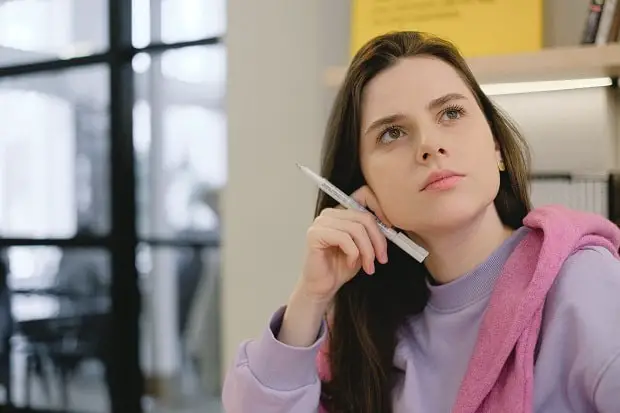
What Makes a Great MBA Application Essay?
- Be school-specific. Explain why you are passionate about the MBA program of the school to which you’re applying.
- Avoid edition. Write simply and engagingly. Let the reader read a meaningful story about you.
- Make it 100% typo-free. Grammatical errors and typos will ruin your essay. Apply standard essay format and structure guidelines , scan your piece several times for errors, get it reviewed by an expert, and present a very professional piece to the admission committee.
- Be original. Do not copy-paste from any source. Strictly follow plagiarism guidelines.
- Write an overwhelming introduction to urge the reader to keep reading and conclude your essay with a strong declaration.
- Be authentic. Write what you are, not what the committee wants to read.
- Be concise, as many schools impose a limit on the essay word count .
Do you want more tips? Here is a complete guide to writing a compelling MBA application essay.
The application essay is a core part of the admission process in the increasingly competitive MBA program. If you do not want to miss the chance of getting selected, you need to know what will make your essay stand out . The expert-vetted list of MBA application essay samples we cited here worked for the top business schools. Learn them by heart, and who knows, it may work for you too. Put your other activities aside, read and analyze the list carefully, and start writing your MBA essay to land in your dream business school.

Get your free PDF report: Download your guide to 100+ AI marketing tools and learn how to thrive as a marketer in the digital era.

Rafal Reyzer
Hey there, welcome to my blog! I'm a full-time entrepreneur building two companies, a digital marketer, and a content creator with 10+ years of experience. I started RafalReyzer.com to provide you with great tools and strategies you can use to become a proficient digital marketer and achieve freedom through online creativity. My site is a one-stop shop for digital marketers, and content enthusiasts who want to be independent, earn more money, and create beautiful things. Explore my journey here , and don't miss out on my AI Marketing Mastery online course.
How to talk about weaknesses in MBA essays and interviews

“I have my flaws. I sing in the shower, sometimes I volunteer too much, occasionally, I’ll hit somebody with my car.” – Michael Scott, Regional Manager, Scranton Branch, Dunder Mifflin Paper Company.
In two delightfully short sentences, Michael Scott from The Office , with his trademark humor, summed up the contradictions and complexities involved in confronting that most confounding of all corporate questions – tell us about your weaknesses.
Talking about weaknesses in your MBA essay and interview is like walking a tightrope. Talk too less and you end up looking arrogant, like Michael Scott. Talk too much and you start sounding like an agony aunt column in an adolescent magazine, also like Michael Scott.
Is there a sweet spot somewhere in between that is just right and that isn’t Michael Scott?
Yes, there is, and we are here to tell you how to hit it.
Why do you need to talk about your weaknesses anyway?
Most MBA essays have a section that requires you to talk about your strengths and weaknesses. Alternatively, there might be a section where you are asked to describe a situation where you failed or talk about a time when you received criticism for your work and how you handled it.
The same set of questions could be posed to you in an interview as well.
Strengths are easy to talk about. You know what you’re good at and you can talk about it endlessly. Talking about weaknesses is the tricky part.
The admissions committee judges your answers to evaluate two things – how self-aware you are, and how well you bounce back from failure. The point to really understand here is that you are applying to a school. A business school, yes, but a school nonetheless. A school is a place where you go to learn things. And you only learn things you do not know yet, or which you aren’t very good at yet.
To put it simply, the admissions committee wants to hear about your weaknesses so that you enter school and learn to improve upon them.
It follows that what the admissions committee wants to see in your essay or hear from you in the interview are two things – an awareness of what your weaknesses are, and a capacity or a will to improve upon them provided the right guidance and environment.
Knowing this is the key to crafting a great response to the adcom’s questions.
So how do you put this knowledge into actionable items?
Below is a 7-point checklist on what to do and what not to do when talking about your weaknesses in MBA essays and interviews.
- Don’t take it personally
- Be original
- Don’t hide your weaknesses
- Don’t try to turn a positive into a negative
- Don’t dwell on your weaknesses too much
- Avoid freudian slips, red flags, alarm bells
- Take it easy
Let’s try to understand what each one means.
How to Talk About Weaknesses in MBA Essays and Interviews
1. don’t take it personally.
Your MBA essay is not your personal diary and your interviewer is not your therapist. While it’s a good habit to keep a diary and try therapy for self-improvement , your MBA essay/interview is not the right place for these.
When the adcom asks you to talk about your weaknesses, what they have in mind are your weaknesses or failures in a professional setting. They aren’t very interested in your character flaws or your life struggles unless they have a direct bearing on your professional performance.
So what you are expected to describe here are situations at your workplace, or examples from your academics where you struggled.
2. Be Original
This one’s a little obvious but it bears repeating. Only talk about weaknesses that you really have. Do not try to mention a weakness simply because it sounds cool, or because you heard someone else talk about it and get through.
Remember how in school, when we were asked our hobbies, half the class would say listening to music and playing cricket?
And then there would be one wiseguy ( it was almost always a guy for some reason) who, refusing to be dragged down to the level of average Joes and plain Janes possessing mundane hobbies, would come up with a hobby no one had ever heard of, simply to sound cool. Like lepidopterology.
Don’t be that guy in your MBA essay.
It is perfectly fine to have perfectly ordinary hobbies like listening to music and playing cricket. It is also perfectly fine to have outrageously unheard of hobbies like lepidopterology. Just make sure that whatever you say, you mean it. If you talk about a certain weakness, you need to make sure that it is something you’ve lived through.
Oh, and a lepidopterologist, by the way, is a butterfly collector.
Read more on the best extracurricular activity for college admissions .
3. Don’t Hide Your Weaknesses
Remember how Tyrion Lannister from Game of Thrones advised wearing your weaknesses like armor so no one could use them against you?
He had a point.
Everyone has weaknesses. If you try to hide yours, the admissions committee will see right through it.
Instead, be honest and talk about your weaknesses openly. You can even use them as an opportunity to show how you’ve grown and changed over the years.
For example, let’s say you have a weakness in math. You can talk about how you used to struggle with math in school and how you had to work hard to improve your skills. You can talk about how you’re now much better at math and how you’ve even been able to help other people improve their own math skills.
This shows that you’re honest about your weaknesses and that you’ve taken steps to improve upon them.
4. Don’t Try To Turn a Positive Into a Negative
This is a classic mistake, related closely to the previous point that a lot of candidates make. It involves describing as a weakness something that is not usually considered a flaw.
For instance, when you mention things like being a perfectionist, or being too kind, or working too hard, what you are in effect doing, is dressing up desirable qualities to pass them off as weaknesses.
This feels disingenuous, like trying to stick colorful feathers on a chicken to pass it off for a peacock. Your interviewer can easily turn it around into a sticky situation and trap you.
Imagine the following exchange:
Interviewer: What is your biggest weakness? You: I think I am too kind. Interviewer: I don’t think kindness is a weakness. I think it is a strength. *awkward silence*
To avoid this trap, instead of saying you’re too kind, you need to phrase it to convey that you lack the firmness to deal with people or that you’re not very good with people skills.
In other words, call a spade a spade.
5. Don’t Dwell on Your Weaknesses Too Much
This follows directly as a counter to the previous point. When talking about your weaknesses, don’t overdo them. You need to keep a balance.
For example, let’s say you’re asked about a time when you failed. You don’t want to spend the whole interview talking about that one time you failed.
Instead, you want to focus on what you learned from that experience and how it made you a better person. This shows that you’re able to learn from your mistakes and that you’re not afraid to fail.
What you want to emphasize here is that you’re aware of your weaknesses and that you’re taking steps to improve upon them.
6. Avoid Freudian Slips, Red Flags, Alarm Bells
This one follows directly from the previous point. When you talk about your weaknesses, make sure you do not reveal more than is necessary.
An example?
Suppose you say something like you have trouble being fully functional at work until you have had your fourth cup of coffee. Or You say that you have trouble waking up most mornings and reporting to work. Or You say that you prepare all your PowerPoint presentations after 7 PM with a sundowner in hand.
All these are behavioral traits that can be viewed as being symptomatic of deeper mental or physical health issues. They are best kept away from an MBA essay or interview.
7. Take It Easy
Finally, don’t spend too much time figuring out the perfect weakness.We know this is a kind of a long and somewhat intimidating list, but once you sit down with a pen and paper to think things through, it will all come together naturally.
Remember, that everyone has weaknesses and that you’re not alone in this. Give it a good thought, but it shoudn’t sound too stressed.
Industry insider tips to answer the weakness question in Interviews

Some business schools do not specifically ask about strengths and weaknesses in their MBA essays. So how does the admissions committee judge these aspects?
“We practice holistic admissions and evaluate candidates across a wide array of behavioral-based evidence in their application packages,” says Erin O’Brien, assistant dean and chief enrollment and marketing officer in the University at Buffalo School of Management.
“We choose to explore a candidate’s strengths and weaknesses as part of our interview process, so that we can probe their responses in a deeper and more thoughtful way than limiting it to a written personal statement,” she adds.
We took the opportunity to dig a little deeper, and Erin had some interesting insights, advice and tips to share.
MCB: What advice do you have to applicants who are apprehensive about revealing their vulnerabilities during the interview?
Erin: Let’s face it, interviews for any graduate management program can be scary. While it’s a delicate balance, it’s also OK to reveal vulnerabilities during an interview – personally, I think it shows authenticity. So many interviews sound the same, and sometimes vulnerabilities can help positively differentiate you from the rest of the candidates. They have the power to show honesty, self-awareness, and a focus on continuous improvement – traits we strongly desire in our students. They can also show the human side of a candidate, beyond quantifiable academic performance statistics.
But, it’s best to be planned and directed when sharing vulnerabilities. As you prep for your interview, ask yourself how will sharing my weakness also provide evidence of something more positive – can I use it to frame resilience or persistence, skill or competency growth? Can I weave it into my motivation for applying to my graduate management program? And, make sure you include how you’ve worked to overcome this weakness or vulnerability, even if you haven’t quite solved it yet. Show how you have made the effort to improve. If you have actual results or behavior-based evidence of success, highlight them.
I think it is important to have guard rails, though, in this type of response. There are potential pitfalls if you choose to reveal a weakness or vulnerability that may be baseline required skills for entrance into the program. You’ll want to avoid those types of responses. Also, as with every answer in a graduate management admissions interview, don’t make anything up – be truthful and honest.
MCB: What are some of the top traits your team looks for in candidates that can help them get an admit in spite of weak areas like a low GMAT score or low GPA?
Erin: I tell candidates all the time, no one thing can rule you in or out. Just because you show up with a great standardized test score or outstanding undergraduate GPA, you still need to bring a portfolio of both cognitive and non-cognitive skills with you into your application. We want to see evidence of strong work experience, be it professional post-baccalaureate, volunteer or internship. We want to see behavioral-based evidence of skills like leadership, teamwork, communication, resilience, creativity, etc. We want to see positive progression, motivation and the ability to self-manage and adapt. These are all equally or sometimes even more important than GPA or test score.
Look at your application as a whole, an entire portfolio of elements. Draw a line between what may be a plus or a minus. If you have a minus, like a lower GPA or a lower test score, make sure you have a plus above the line that far outweighs any negative impact.
For example, if you have a lower GPA, but your undergraduate career was more than five years ago and you now have outstanding work experience showing lots of leadership potential, that’s going to minimize the negative impact of that GPA in our admissions decision-making. If you volunteered in a global experience, leading a team of others in a social impact project, that may far outweigh any negative impact from test scores.
Here’s an insider pro tip: you’re far more interesting than your GPA or test score. Tell us all about it. Chances are it will improve your potential of admission.
MCB: What is your advice to those who have career related issues including frequent career switching, career gaps or lay-offs?
Erin: My advice to applicants with resumes that may have gaps or frequent switches is really a call-back to my previous responses above: you are far more interesting than any single application data point.
Let’s start with lay-offs. Lay-offs happen – look at what’s happening in the tech world now. What I would want to know, as your interviewer, is, how did you pivot? This is a great opportunity to show resilience and creativity.
For gaps or career-switching, what is the story behind the gap or switch pattern? Was it intentional, e.g., did you purposefully make lateral moves to gain a wide variety of experience? Was it a condition of the industry in which you operate, e.g., were you in start-ups? What did you do with the gap time? How did you make it constructive and progressive? Was the switch or gap unintentional, e.g., is it a potential weakness?
Be truthful and honest…this may be an opportunity to showcase your adaptability and motivation for pursuing a graduate management degree, to hurdle the career plateau on which you found yourself switching job to job without advancement.
In the end, relative to all three questions and responses above, many applicants think business schools are looking for a homogenized portrait of traits and characteristics in the admissions process. Unfortunately, I think that’s a condition of being in a publicly-ranked market where applicants are trying to make themselves look like the “ideal” candidate.
However, that couldn’t be further from the truth! We are building a balanced cohort of different thoughts, perspectives and experiences for our programs. How boring would business school be if it were filled with only those who had the same profile – high test scores, similar experiences, the same type of work backgrounds.
How much more interesting will it be if you are in a cohort teamed with people who have vastly different opinions, points of view and backgrounds from yours, where you can learn new things from each other? Personally, I’d much rather be in that class.
Talking about your weaknesses is a complex task that requires self-awareness to understand and nuance to express. It is for this reason that MBA essays and interviews want to hear it from you.
Even if you haven’t been asked to talk about your weaknesses in the MBA essay, it’s good to have a few examples of your weaknesses ready to go, so that you’re not caught off guard in the interview.
By being honest and prepared, you’ll be able to talk about your weaknesses in a way that will show the admissions committee that you’re aware of them and that you’re taking steps to improve upon them.
You also want to make sure that you don’t dwell on your weaknesses too much. Instead, focus on what you’ve done to improve upon them.
A word of caution: Often, this question on weaknesses works in conjunction with other topics in the application essays or interviews. This is where it gets trickier. So make sure you understand the implications of what you’re saying, to avoid conflicting with your other answers.
MBA Crystal Ball has top admission consultants to help you answer this and other questions in your MBA application in the most effective manner. Drop us an email, if you need professional help: info [at] mbacrystalball [dot] com Also read: – How to write great MBA essays – Common mistakes to avoid in MBA application essays – How to answer questions on the long term and short term goals – Many more top MBA essay tips – Best admissions consultant for ISB for winning ISB essay tips
Image credit: The Office
Mini-MBA | Start here | Success stories | Reality check | Knowledgebase | Scholarships | Services Serious about higher ed? Follow us:

Leave a Comment Cancel reply
GMAT Prep Online Guides and Tips
7 tips for writing a winning mba application essay.
Nervous about your MBA admissions essay? You’re not alone! Many applicants wonder how to put their best foot forward in a business school entrance essay.
In this article, I’ll tell you what admissions committees look for in application essays and offer MBA essay tips on how to make yours stand out. We’ll also take a look at the different kinds of business school essays and a few examples of MBA essay prompts.
Why Do Business Schools Ask for Essays? What Do They Look For?
Business schools ask for essays for several reasons, all of which help admissions committees determine whether you have the skills and traits to succeed in an MBA program.
First, MBA admissions committees want to see how you write. Communication skills—including concision, clarity, style, and fluency in English—will be essential to your success in business school. One way of discerning your level of writing ability is to require an original writing sample. In an MBA essay, you have to get your point across straightforwardly, elegantly, and concisely; being able to do this is a key element of succeeding in business school and the world of business in general.
Also, MBA admissions committees want to get a sense of who you are on a more personal level. MBA application essays tell admissions officials about you not only through what you say, but in how you say it. Are you self-aware, for example, and can you reflect on past challenges or mistakes in a thoughtful way? Do you demonstrate insight into who you are and your goals? How you answer questions about yourself, your career, and your journey can help MBA admissions officials discern your level of critical thinking and personal insight.
Not sure how or what to study? Confused by how to improve your score in the shortest time possible? We've created the only Online GMAT Prep Program that identifies your strengths and weaknesses, customizes a study plan, coaches you through lessons and quizzes, and adapts your study plan as you improve.
We believe PrepScholar GMAT is the best GMAT prep program available , especially if you find it hard to organize your study schedule and don't want to spend a ton of money on the other companies' one-size-fits-all study plans.

You can have countless accomplishments, but to succeed in business school, you’ll also need to fit in with the campus climate, work well with your peers, and contribute to campus diversity in a meaningful way. The MBA essay is a place for you to talk about the background or experiences you have that are unique to you and that you believe could differentiate you from your colleagues and/or provide a fresh perspective to campus.
Finally, essays are a way for you to showcase the qualities that most MBA programs say they are looking for in applicants, such as leadership skills, community involvement, problem-solving skills, communication skills, clear goals, and a strong sense of ethics. Some of these traits might not be readily apparent from a resume alone, and an MBA essay can be a place for you to elaborate on how you’ve cultivated them in yourself.

MBA Entrance Essay Sample Prompts
Most MBA entrance essays ask you about one of several things. Many of them are variations on similar questions: the open-ended question, the leadership question, the personal growth question, questions on short- and long-term academic and career goals, and the diversity question. For each one, I’ll give an example of a real MBA essay prompt from 2016 or 2017.
#1: Open-Ended
The open-ended MBA application essay question is just that: open. It allows you to tell your own story, giving you quite a bit of freedom but also little to no guidance. For that reason, many applicants find it to be the most challenging MBA essay prompt.
Harvard Business School has only one essay for its MBA application, and it’s the quintessential open-ended MBA essay question. This is the prompt for 2017-2018 applicants.
As we review your application, what more would you like us to know as we consider your candidacy for the Harvard Business School MBA program?
Note that, as in other open-ended MBA admission essay prompts, this question asks you to decide what you’ll write about. Successful Harvard applicants and HBS admissions counselors have advised applicants to use the prompt as a chance to demonstrate their past use of an especially desired trait, such as problem-solving skills. For example, many successful applicants use the prompt to describe a scenario in which they faced and overcame a challenge, especially as a leader or alongside a team.
Notably, Harvard also doesn’t list a word limit, so you can decide the appropriate length for your essay. However, most admissions counselors will advise you to keep it concise and straightforward.
#2: Leadership
Another common MBA essay prompt asks you to demonstrate your experience and skills as a leader. Leadership qualities are listed by nearly all MBA admissions counselors as fundamental to a career in business and, thus, to a successful business school application.
Let’s look at a sample leadership MBA essay prompt from Kellogg.
Leadership and teamwork are integral parts of the Kellogg experience. Describe a recent and meaningful time you were a leader. What challenges did you face, and what did you learn? (450 words)
In a response to this kind of prompt, you should be as specific as possible. Name the company you were working for or specifically describe the project you were heading. Who was on your team? What were your objectives? Did you meet them? How could you have done so more effectively?
While you shouldn’t be overly self-deprecating, don’t be afraid to address the challenges you met and how you overcame them (or would overcome them now, with more experience and knowledge). Remember that one important aspect of leadership is accountability, so if there were problems, don’t solely blame your team for them. Instead, reflect on how you successfully worked with your team to solve the problems, and/or on how you could have done so more effectively or efficiently.
#3: Personal Growth
The personal growth MBA admission essay prompt will ask you how you’ve changed in the past and how you want to grow in the future. Here’s one example from the Northwestern University Kellogg School of Management.
Pursuing an MBA is a catalyst for personal and professional growth. How have you grown in the past? How do you intend to grow at Kellogg? (450 words)
Don’t be afraid to get a bit personal with these kinds of prompts . They’re meant to gauge something about your personality and who you are, rather than only what you’ve done.
Many successful MBA admission essays that respond to these kinds of questions follow a past/present/future format. Ask yourself what traits you’ve gathered over the years that have benefited you personally and professionally, how you’ve improved, and what you’ve learned. What experiences have shaped you? Be as specific as possible.
Want to improve your GMAT score by 60 points?
We have the industry's leading GMAT prep program. Built by Harvard, MIT, Stanford, and Wharton alumni and GMAT 99th percentile scorers, the program learns your strengths and weaknesses and customizes a curriculum so you get the most effective prep possible.

Then, take stock of yourself now: your career, your education, and where you see yourself in the future. What do you need in order to get there?
Finally, most essay MBA prompts in this vein (like Kellogg’s) will ask you how they can help you move towards that personal or professional goal. Be as specific as you can, focusing on the particular strengths of the prospective MBA program and how they match up with what you want to improve about yourself as a person, colleague, and leader.

#4: Your Plan
Some MBA application essay prompts will ask you about your career goals and how attendance at a particular business school will help you to achieve them. Let’s look at one from the USC Marshall School of Business.
Essay #1 (Required) – What is your specific, immediate short-term career goal upon completion of your MBA? Please include an intended position, function, and industry in your response. (word limit: 100)
As you can see, questions like these often request brief responses. So get straight to the point, and give details. Name a specific job you’d like to hold, what you’d like to do there, and even particular companies if you can.
Questions like this one will require some research. Research alumni from your prospective business school who’ve ended up in positions comparable to ones you’d like to hold in the future, particular companies and positions that match up with your personal and professional goals, and specific coursework or industry experiences offered by your prospective business school that would help you get there.
#5: Diversity, Culture, and Community
Finally, some MBA essay prompts will ask you how your unique background and experiences would contribute to the overall diversity and collegial atmosphere of a school’s campus climate and community. Here’s one example from USC.
Essay #2 (Required) – At Marshall, we take pride in the fact that our students work collaboratively, both inside and outside the classroom, to create a culture, a community, and an environment that truly defines what we call the Trojan Family. Please describe the contributions you expect to make to your classmates during your time at USC. How will they benefit from your presence in the program? (word limit: 500)
You can respond to questions like this, depending on the wording of the original prompt, by discussing your cultural background, identity, and/or personal experiences that have given you particular insight into a given community or that have lent you a unique perspective that could be valuable to your colleagues as you collaborate.
You can also discuss past community service projects or issues you’re passionate about and how you plan to carry those experiences and passions into your work at your prospective MBA program.

7 MBA Essay Tips
Writing MBA essays takes a particular skill set. Let’s go over the top seven MBA essay tips for making your application essay shine.
Want to Identify YOUR GMAT Strengths and Weaknesses?
Our proprietary GMAT Diagnostic Assessment creates a customized study plan for you that takes you from registration all the way to test day! It is included with every account and proven to significantly maximize your score .
Get your personalized assessment as part of your 5 day risk-free trial now:

#1: Write Early and Often
Even though MBA entrance essays are brief, they take a lot of polishing. Writing MBA essays takes time.
Don’t expect to write yours at the last minute or knock out a quality essay in a day. Most students need several drafts to make sure they’re getting their points across as elegantly and clearly as possible.
Start your essay well before the application deadline, when you don’t yet feel any pressure. For several weeks, don’t try to write at all. Instead, before crafting your essay for MBA admission, take notes on your past, present, and future. What have you learned? What unique experiences have you had? What have been the most meaningful projects you’ve undertaken? Ask friends, family, and mentors to tell you what they value most about you or what they see as your greatest personal and professional assets.
Only once you’ve gathered this material should you begin your first draft of your MBA application essay. Start with an outline for each one that includes the story you want to tell and the main points you want to get across.
Once you have a clear outline, you can start drafting. Taking the writing process seriously from start to finish will give you a much better product in the end than trying to write something hastily right before the deadline.
#2: Show, Don’t Tell
MBA admissions committees want to be able to tell that you have the qualities that are necessary to succeed in business school, such as leadership skills and integrity.
Your MBA admissions essay can be a great place to showcase those qualities. However, remember to show, not tell. Saying “I have strong leadership skills” doesn’t tell an admissions committee much. Through an anecdote about, say, meeting a difficult deadline or overcoming an obstacle, a reader should be able to tell that you have the qualities of a strong leader without your having to say so explicitly.
#3: Research Your Goals
When describing your future goals, be as specific as possible. Business schools know that your goals may change in the future, but stating specific goals now will show that you’ve done your research and have an idea of what you want and how an MBA program can help you get there.
Before writing your essay for MBA admission, research the ins and outs of the industry you want to enter, the position you’d like to have, companies you might like to work for, and coursework and internships or fieldwork that could aid you on your way to those goals.
#4: Keep It Concise
Never, ever go over a stated word count limit when you’re writing your essay for MBA admission. It might be tempting, but business schools want to see that you can get your point across concisely and straightforwardly.This rule goes for MBA essay prompts that don’t have specific word counts, too: sometimes, less is more.
One of the biggest mistakes applicants make in writing an essay for MBA admission is to use too much flowery language to come across as more professional. If you do this, it can be distracting and cause the admissions committee to miss the main points you’re making.
Bottom line, trim anything extraneous from your essay —that is, anything that doesn’t actively support the main point(s) you’re trying to get across.

#5: Show Self-Awareness
It might feel tempting to use the MBA admission essay as a space to list all of your accomplishments (and since your resume is already part of your application, this is unnecessary), but MBA admissions committees would rather see that you have insight into both your strengths and weaknesses. No one is perfect, and in your essay for MBA admission, you shouldn’t try to come across as if you’ve never made a mistake or faced a challenge that you’ve had to learn from.
Also, in business school and the business world at large, bouncing back from failures, being flexible, and problem solving are all essential skills. All of them require a thick skin and awareness of what you could do better.
Of course, this doesn’t mean that you shouldn’t showcase your achievements, but if you’re asked about personal growth or an obstacle you’ve overcome, be clear about what you could have done more effectively in the past (at a job or in your education, for example) and the steps you’ve taken or will take to sidestep that mistake in the future.
#6: Share Your Personal Journey
Many applicants would prefer to focus only on their professional backgrounds and goals in their MBA essays, but you shouldn’t be afraid to get personal in your essay. You don’t need to tell your whole life story, but especially in response to questions that ask about your growth over time, you should showcase your personality and give the admissions committee an idea of your personal background and experiences.
#7: Ask for Edits
It might seem obvious, but many applicants don’t do it: proofread your work! When writing MBA essays, revision is key. Turning in an MBA essay with typos and other errors will come off as thoughtless and unprofessional.
You should also get a second (and, perhaps, a third and fourth) pair of eyes on your essay to make sure it’s coming across as you want it to. Going through several rounds of drafts is a necessary part of the writing process to ensure that you’re putting your best foot forward in your MBA entrance essay.
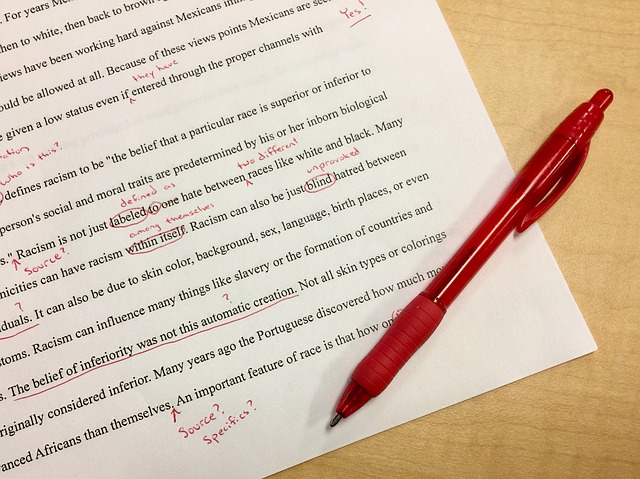
What’s Next?
Worried about how your GMAT score matches up to other applicants’? Find out more in our list of average GMAT scores by school.
Concerned about your chances of getting into an MBA program? Our guide to business school acceptance rates will help.
Ready to apply to business school? Check out our top eight tips for applying to MBA programs here.
Was this helpful? Sign up for FREE GMAT and MBA guides!
Share this:.
- Click to share on Twitter (Opens in new window)
- Click to share on Facebook (Opens in new window)
- Click to share on Google+ (Opens in new window)
Author: Laura Dorwart
Laura Dorwart is a Ph.D. student at UC San Diego. She has taught and tutored hundreds of students in standardized testing, literature, and writing. View all posts by Laura Dorwart
Recently viewed courses
Recently viewed.
Find Your Dream School
This site uses various technologies, as described in our Privacy Policy, for personalization, measuring website use/performance, and targeted advertising, which may include storing and sharing information about your site visit with third parties. By continuing to use this website you consent to our Privacy Policy and Terms of Use .
COVID-19 Update: To help students through this crisis, The Princeton Review will continue our "Enroll with Confidence" refund policies. For full details, please click here.
20 Must-Read MBA Essay Tips

Business school admissions committees care about more than (just) your GMAT scores and GPA —they want to know who you are and why you belong in their program . Your MBA essays are your best chance to sell the person behind the résumé. They should tie all the pieces of your business school application together and create a comprehensive picture of who you are, what you've done, and what you bring to the table. Here's a roundup of our best MBA essay tips to keep in mind as you begin to write.
How to Write an Unforgettable B-School Essay
1. communicate that you are a proactive, can-do sort of person..
Business schools want leaders, not applicants content with following the herd.
2. Put yourself on ego-alert.
Stress what makes you unique, not what makes you number one.
3. Communicate specific reasons why you're great fit for each school.
Simply stating "I am the ideal candidate for your program" won't convince the admission committee to push you into the admit pile.
Read More: Find Your Business School
4. Bring passion to your writing.
Admissions officers want to know what excites you. And if you'll bring a similar enthusiasm to the classroom.
5. Break the mold.
Challenge perceptions with unexpected essays that say, "There's more to me than you think."
6. If you've taken an unorthodox path to business school, play it up.
Admissions officers appreciate risk-takers.
7. Talk about your gender, ethnicity, minority status or foreign background....
But only if it has affected your outlook or experiences.
8. Fill your essays with plenty of real-life examples.
Specific anecdotes and vivid details make a much greater impact than general claims and broad summaries.
9. Demonstrate a sense of humor or vulnerability.
You're a real person, and it's okay to show it!
BONUS: Don't Make These MBA Essay Mistakes
1. write about your high school glory days. .
Admissions committees don't care if you were editor of the yearbook or captain of the varsity team. They expect their candidates to have moved onto more current, professional achievements.
2. Submit essays that don't answer the questions.
An off-topic essay, or one that merely restates your résumé, will frustrate and bore the admissions committee. More importantly, it won't lead to any new insight about you.
Attend UNC's top-ranked online MBA program without putting your career on hold. See how.
3. Fill essays with industry jargon.
Construct your essays with only enough detail about your job to frame your story and make your point.
4. Reveal half-baked reasons for wanting the MBA.
Admissions officers favor applicants who have well-defined goals. However unsure you are about your future, it's critical that you demonstrate that you have a plan.
5. Exceed the recommended word limits.
This suggests you don't know how to follow directions, operate within constraints or organize your thoughts.

6. Submit an application full of typos and grammatical errors.
A sloppy application suggests a sloppy attitude.
7. Send one school an essay intended for another—or forget to change the school name when using the same essay for several applications.
Admissions committees are (understandably) insulted when they see another school's name or forms.
8. Make excuses.
If your undergraduate experience was one long party, be honest. Discuss how you've matured, both personally and professionally.
9. Be impersonal in the personal statement.
Many applicants avoid the personal like the plague. Instead of talking about how putting themselves through school lowered their GPA, they talk about the rising cost of tuition in America. Admissions officers want to know about YOU.
Read More: How to Ace Your MBA Interview
10. Make too many generalizations.
An essay full of generalizations is a giveaway that you don't have anything to say.
11. Write in a vacuum.
Make sure that each of your essays reinforce and build on the others to present a consistent and compelling representation of who you are, what you've done, and what you bring to the table.
Practice for the GMAT
Take a GMAT practice test with us under the same conditions as the real thing. You'll get a personalized score report highlighting your strengths and areas of improvement.
START A FREE PRACTICE TEST
- Business School

Find MBA Programs Matched to Your Interests
Explore our featured business schools to find those that are looking for students like you.

Top Online MBA Programs
On a mission to increase your salary? Our Top 50 Online MBA ranking is based on academics, career outcomes, tech platforms, and more.

Best Career Prospects
Find out which schools have the best track records for getting students jobs—and the highest starting salaries.

Top Schools for Entrepreneurship
Ready to build your own business from the ground up? Check out these 50 graduate programs.

Free MCAT Practice Test
I already know my score.

MCAT Self-Paced 14-Day Free Trial

Enrollment Advisor
1-800-2REVIEW (800-273-8439) ext. 1
1-877-LEARN-30
Mon-Fri 9AM-10PM ET
Sat-Sun 9AM-8PM ET
Student Support
1-800-2REVIEW (800-273-8439) ext. 2
Mon-Fri 9AM-9PM ET
Sat-Sun 8:30AM-5PM ET
Partnerships
- Teach or Tutor for Us
College Readiness
International
Advertising
Affiliate/Other
- Enrollment Terms & Conditions
- Accessibility
- Cigna Medical Transparency in Coverage
Register Book
Local Offices: Mon-Fri 9AM-6PM
- SAT Subject Tests
Academic Subjects
- Social Studies
Find the Right College
- College Rankings
- College Advice
- Applying to College
- Financial Aid
School & District Partnerships
- Professional Development
- Advice Articles
- Private Tutoring
- Mobile Apps
- Local Offices
- International Offices
- Work for Us
- Affiliate Program
- Partner with Us
- Advertise with Us
- International Partnerships
- Our Guarantees
- Accessibility – Canada
Privacy Policy | CA Privacy Notice | Do Not Sell or Share My Personal Information | Your Opt-Out Rights | Terms of Use | Site Map
©2024 TPR Education IP Holdings, LLC. All Rights Reserved. The Princeton Review is not affiliated with Princeton University
TPR Education, LLC (doing business as “The Princeton Review”) is controlled by Primavera Holdings Limited, a firm owned by Chinese nationals with a principal place of business in Hong Kong, China.

MBA Resources
Strengths and Weaknesses Unveiled: Navigating Your MBA Application Journey

MBA & Beyond Team
21/08/2023 | 10:21 pm

Welcome to our guide on addressing “Strengths and Weaknesses” in your MBA application. As you embark on this crucial journey towards your business school aspirations, it’s essential to master the art of presenting your strengths confidently while candidly addressing your areas for growth. In this article, we’ll delve into strategies and insights to help you navigate this aspect of your application process effectively. Let’s unlock the potential of your candidacy together.
Writing an application includes your GMAT scores or GPA; it tells who you are as a person. Your Strengths and Weaknesses in an MBA application serve as indicators of your credibility and accountability in unfamiliar and challenging situations, a common and signature element of the business field.
LIVE Q&A WITH ALUMS OF TOP B-SCHOOL
Condensing all the essential dimensions into a few paragraphs and showcasing the “best” in you for the cause may appear daunting and exhausting.
But fret not!
This article will cover all the pertinent details to include and avoid when addressing your strengths and weaknesses essay in detail during the drafting of your B-school application.
Our bullet spells will help you succeed with flying colors. 😉
So, here’s your key tip for crafting a high-quality strengths and weaknesses essay for your MBA application.
HERE ARE FEW TIPS TO ACE YOUR STRENGTHS AND WEAKNESS ESSAY FOR YOUR MBA APPLICATION
What are your strengths for an mba.
The question mentioned above is considered one of the most anticipated ones that nearly every MBA applicant needs to address, either within an essay or as a query for your recommenders.
“What are your strengths for an MBA?” may appear as a generic question, but the scope of knowing your “strengths for MBA application” and aligning them with the values that your target b-school holds can be a total game-changer!. World-class B-schools seek leaders, visionaries, and individuals capable of challenging established norms in the business world. It is crucial to demonstrate to the admissions committee that you embody these qualities by highlighting your strengths in your MBA application.
IDENTIFY THE POSITIVES AND NEGATIVES OF YOUR PROFILE
Strengths for MBA are easy; most of the top B-schools are looking for candidates with leadership qualities.
College administrations are aware that most candidates won’t have many significant accomplishments in terms of strengths for MBA early in their career. However, they seek qualities such as innovative vision, creativity, teamwork, and thoughtful curiosity in applicants.
Alongside implementing other general tips outlined in the article, ensuring that your strengths and weaknesses for MBA application complement each other effectively in your b-school essays is a strategic and wise move.
- Precision in your writing of Strengths and weaknesses essay
Be precise while introducing yourself or providing valuable details such as your GMAT/GRE Scores in your strengths and weakness essays.
Precision doesn’t entail portraying oneself as a ‘perfect candidate’; the objective should be to selectively highlight pertinent aspects, depicting oneself as a ‘credible candidate’ who pays attention to even minute details when conveying strengths and weaknesses for MBA applications.
RATE MY CHANCE FOR TOP B-SCHOOLS
- Creativity is the key to master strengths and weaknesses for MBA applications.
Well, it’s no secret that every B-school receives thousands of application letters every day so, what makes your letter unique among others?
Beyond professional certificates and test scores, the method of expressing your strengths and weaknesses for MBA applications plays a pivotal role in your selection.
Why would they accept your candidature? Everyone talks about their leadership experiences, accomplishments, social impact, etc. What will make you stand out?
To tackle such questions, position yourself as the protagonist when detailing your strengths for MBA. Make yourself the focal point. Mould your actions and experiences into a narrative that showcases your involvement in managing difficult situations while addressing your strengths and weaknesses essay. Add a touch of personality to infuse depth and flavor into your essay.
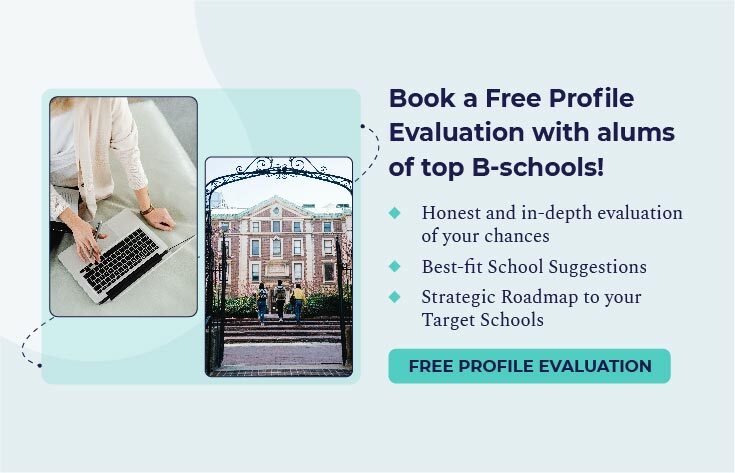
- Be Professional in your Strengths for MBA essay.
Remember that you are creating an application for a professionally-oriented B-school. Therefore, emphasizing strengths in your professional experience should be your primary focus.
It’s vital to underscore strengths for MBA that highlight your personality, but that’s the second step to consider. Initially, you must link your strengths for MBA to your professional life, future goals, and aspirations.
WEAKNESS FOR MBA APPLICATION
When prompted to explore their weaknesses for MBA applications, candidates should ponder two fundamental questions before starting:
What should I avoid mentioning about my weakness for MBA interviews?
What is the college administration looking for in my strengths and weaknesses essays?
Answering these two questions clearly and earnestly will help you craft a thoughtful and compelling response that will enhance your strength and weakness for MBA application.
MAXIMIZE CHANCES FOR TOP B-SCHOOLS SCHOLARSHIPS
First, avoid mentioning weakness for MBA applications outside your academic or professional life as they aren’t relevant to your future career.
Crafting a weakness that logically aligns with your strengths is a strategic approach. It not only underscores your self-awareness but also showcases your leadership trait of recognizing areas for improvement. This method can be particularly valuable when addressing weaknesses for the MBA application and interview. The essence lies in establishing a connection between specific drawbacks and particular strengths in your weakness for the MBA application.
The college administration is seeking applicants with positive character traits such as self-awareness and self-assessment—someone who can interpret their shortcomings and improvise to develop them into potential growth areas.
WHY IS WEAKNESS A STRENGTH?
To answer this above question, here are some tips to address your “ weakness for MBA application .”
- Personalize your weaknesses for MBA application:
Each candidate possesses their own set of shortcomings and weaknesses. Offering appropriate context for them in your strength and weakness essay enables the reader to comprehend the specific circumstances and envisage how you would handle similar situations as a student if admitted.
Leadership experience and potential are highly valued at business schools but may not be universally attainable. Instead, consider weaknesses for MBA as opportunities for growth and present them effectively in your strength and weakness essays.
APPLY WITH TOP B-SCHOOL EXPERTS
- Be Honest
“The most crucial takeaway is to be honest.” Presenting specific flaws and addressing them sincerely in your weakness for MBA application essays will give you an advantage by allowing you to discuss the impact they’ve had on shaping who you are today. Every candidate has their own flaws, but not everyone will use them as an opportunity to reveal their true selves in their strengths and weaknesses for MBA application essays.
- Avoid counting too many weaknesses for MBA admission essays.
Avoid delving into excessive weaknesses; one or two examples will suffice. Instead, concentrate on sharing a genuine weakness in your MBA application. You can emphasize a specific area of knowledge, skill, or type of experience that you wish you had acquired based on your previous work. Furthermore, be sure to elaborate on your plans for skill development in your strengths and weaknesses essays. This approach will convey to the college admissions committee that you are actively addressing your areas of improvement, demonstrating your commitment to personal growth while acknowledging that nobody is flawless.
- Focus on yourself in your strengths and weaknesses essays
Instead of attributing blame to colleagues and the work environment, it is crucial to present proof of your capacity to identify the skills needed. Discuss the strategies employed in addressing these challenges in your strengths and weaknesses essays. Demonstrating self-awareness and self-assessment is essential to depict yourself as an applicant who acknowledges areas for improvement.
STRENGTHS AND WEAKNESSES EXAMPLES
Leadership qualities, intellectual appetite, self-introspection, and personal accountability are some prime qualities every B-school is looking for.
Feel free to narrate a success story! Sharing a success story is a fantastic method to highlight your decision-making and communication skills adeptly. Nevertheless, it is equally crucial to illustrate how you have actively enhanced these skills and your recognition of the necessity to incorporate additional skills into your skill set.
BEST-FIT B SCHOOLS FOR YOUR PROFILE
While discussing your strengths, always remember to follow a Problem, action, result approach!
- Mention the situation and your role
- Mention your action and how you utilize your skills to deal with the problem.
- Describe the result and how the situation turned out in favor of your company.
- Lessons you learned and how these skills will help you prosper in your future.
Lacking adequate knowledge in a specific domain can be a valid weakness. For instance, in your previous role as a Marketing Manager, limited exposure to the technical aspect of the business could be identified as an area for improvement. Subsequently, you can elaborate on your plans to enhance these skills.
The top B-school programs seek individuals with leadership qualities, visionary thinking, and an entrepreneurial spirit capable of challenging and shaping the future. It is crucial to convey to the admissions board that you embody these traits. With competition intensifying each day, securing a spot at the top business schools has become an increasingly challenging endeavor. Merely having good grades, certificates, and educational history is no longer sufficient for MBA applicants; they must possess additional qualities to gain admission.
While reviewing application essays, the admission committee seeks credible individuals poised for future impact. Hence, it is your responsibility to articulate your personal and professional narrative in a manner that engages the reader. You may think this means that you need to show them a history of spotless professional records, a flawless transcript, and a journey filled with success?
KNOW YOUR ADMISSION CHANCE
Of course not! If your story lacks failures or weaknesses, it may come across as lacking authenticity, and the admissions committee might perceive it as if you haven’t fully contemplated their application questions.
Every individual has experienced failure at some point, and such setbacks can serve as a dual advantage for your application. They not only showcase the capacity for self-introspection, a rare leadership trait, but also provide an opportunity to outline your action plan for future endeavors.
HOW TO COMMUNICATE YOUR STRENGTHS AND WEAKNESSES FOR AN MBA INTERVIEW TO THE ADCOMS?
The first and foremost step is to be perfectly honest, don’t try to outplay the interviewer by marking your strengths as your weaknesses.
Ensure that any strength you highlight incorporates qualities that B-schools specifically value. Avoid presenting yourself as perfect, as it implies there’s nothing left to learn, and this impression may not be well-received by the Adcoms.
Self-introspection is valuable, but it doesn’t necessitate tearing yourself down. Limit your weaknesses to one or two at most. Simply stating your weaknesses is not sufficient; provide a logical foundation linked to your future goals. Question why you believe a particular aspect needs change and consider how this transformation can contribute to your personal growth.
If you’re still seeking further guidance on how to prepare your strengths and weaknesses for an MBA interview, join us for a call! Our 45-minute in-depth consultation will assist you in overcoming any challenges encountered during interview preparation.
Frequently Asked Questions
How can I make my MBA application strong?
Rather than making your strengths and weaknesses for MBA application exhaustive detail-wise, try to make it more genuine by focusing on strengths for MBA relevant to your future goals and how admission to your dream school will help achieve them.
Precision, creativity, honesty, and professionalism are the major aspects of drafting a near-perfect strengths and weaknesses essay for an MBA application.
How can you justify your strengths?
Ensure that your certificates, academic background, and prior work experience seamlessly align with the highlighted strengths for MBA. The college administration recognizes that noteworthy achievements at a young age are uncommon, making them particularly interested in individuals with vision, creativity, and strong leadership skills.
What should I write about my weaknesses in MBA?
Crafting weaknesses for MBA essays can be challenging, but to prevent misinterpretation, focus on offering logical weaknesses tied to your profession. However, refrain from listing too many in your MBA application essays; limit them to two or at most three. Additionally, keep in mind that the capacity for self-criticism and introspection is a valuable leadership trait, and it’s relatively rare among B-school applicants.
Leave a Reply
Your email address will not be published. Required fields are marked *
Articles You Might Like

Should an International Candidate go for an INSEAD R3 MBA?

Top MBA programs starting in January 2024
Upcoming Events

Unlock Your MBA Dreams: Scholarships & Financing Strategies!
May 2, 2024 | 9:00 pm – 10:00 pm
UPCOMING EVENT: Unlock Your MBA Dreams: Scholarships & Financing Strategies!. Register now

50 MBA Essays That Got Applicants Admitted To Harvard & Stanford
- Share on Facebook
- Share on Twitter
- Share on LinkedIn
- Share on WhatsApp
- Share on Reddit
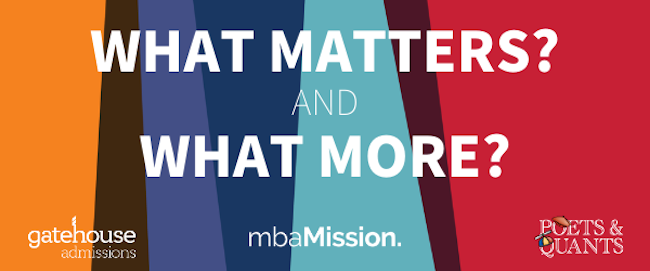
What Matters? and What More? is a collection of 50 application essays written by successful MBA candidates to Harvard Business School and Stanford Graduate School of Business
I sat alone one Saturday night in a boardroom in Eastern Oregon, miles from home, my laptop lighting the room. I was painstakingly reviewing a complex spreadsheet of household energy consumption data, cell by cell. ‘Why am I doing this to myself? For remote transmission lines?’…I felt dejected. I’d felt that way before, during my summer at JP Morgan, standing alone in the printing room at 3 a.m., binding decks for a paper mill merger that wouldn’t affect my life in the least.
That’s how an analyst at an MBB firm started his MBA application essay to Stanford Graduate School of Business. His point: In a well-crafted essay, he confronts the challenge of finding meaning in his work and a place where he can make a meaningful difference. That is what really matters most to him, and his answer to Stanford’s iconic MBA application essay helped get him defy the formidable odds of acceptance and gain an admit to the school.
Getting into the prestigious MBA programs at either Stanford Graduate School of Business or Harvard Business School are among the most difficult journeys any young professional can make.
NEARLY 17,000 CANDIDATES APPLIED TO HARVARD & STANFORD LAST YEAR. 1,500 GOT IN
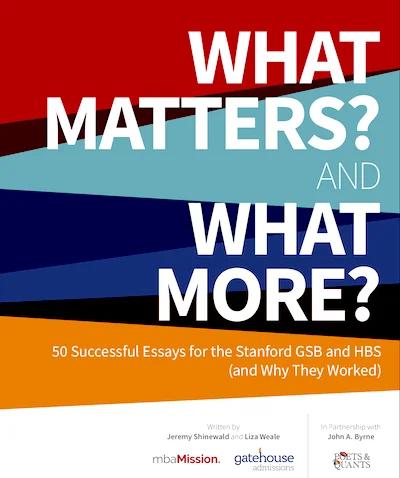
This collection of 50 successful HBS and GSB essays, with smart commentary, can be downloaded for $60
They are two of the most selective schools, routinely rejecting nine or more out of every ten applicants. Last year alone, 16,628 candidates applied to both schools; just 1,520 gained an acceptance, a mere 9.1% admit rate.
Business school admissions are holistic, meaning that while standardized test scores and undergraduate transcripts are a critical part of the admissions process, they aren’t the whole story. In fact, the stories that applicants tell the schools in the form of essays can be a critical component of a successful application.
So what kinds of stories are successful applicants to Harvard and Stanford telling their admission officers? For the first time ever, a newly published collection of 50 of these essays from current MBA students at these two schools has been published. In ten cases, applicants share the essays they wrote in applying to both schools so you can see whether they merely did a cut-and-paste job or approached the task anew. The 188-page book, What Matters? and What More?, gains its title from the two iconic essay prompts at Harvard and Stanford.
THOUGHTFUL CRITIQUES OF THE ESSAYS
Stanford can easily boast having the most difficult question posed to MBA applicants in any given year: In 650 words or less, candidates must tell the school what matters most to them and why. Harvard gives applicants ample room to hang themselves, providing no word limit at all, “What more would you like us to know as we consider your candidacy?”
One makes this unusual collection of essays powerful are the thoughtful critiques by the founders of two MBA admissions consulting firms, Jeremy Shinewald of mbaMission and Liza Weale of Gatehouse Admissions. They write overviews of each essay in the book and then tear apart portions by paragraphs to either underline a point or address a weakness. The book became available to download for $60 a pop.
As I note in a foreword to the collection, published in partnership with Poets&Quants, the essay portion of an application is where a person can give voice to who they are, what they have achieved so far, and what they imagine their future to be. Yet crafting a powerful and introspective essay can be incredibly daunting as you stare at a blank computer screen.
APPLICANTS OPEN UP WITH INTIMATE STORIES THAT SHOW VULNERABILITY
One successful applicant to Harvard Business School begins his essay by conveying a deeply personal story: The time his father was told that he had three months to live, with his only hope being a double lung transplant. had to undergo a lung transplant. His opening line: “Despite all we had been through in recent years, I wasn’t quite sure what to expect when I asked my mother one summer evening in Singapore, ‘What role did I play during those tough times?’”
For this candidate to Stanford Graduate School of Business, the essay provided a chance to creatively engage admission readers about what matters most to him–equality-by cleverly using zip codes as a hook.
60605, 60606, 60607.
These zip codes are just one digit apart, but the difference that digit makes in someone’s life is unfathomable. I realized this on my first day as a high school senior. Leafing through my out-of- date, stained, calculus textbook, I kept picturing the new books that my friend from a neighboring (more affluent) district had. As college acceptances came in, I saw educational inequality’s more lasting effects—my friends from affluent districts that better funded education were headed to prestigious universities, while most of my classmates were only accepted by the local junior college. I was unsettled that this divergence wasn’t the students’ doing, but rather institutionalized by the state’s education system. Since this experience, I realized that the fight for education equality will be won through equal opportunity. Overcoming inequality, to ensure that everyone has a fair shake at success, is what matters most to me.
HOW AN APPLICANT TO BOTH SCHOOLS ALTERED HIS ESSAYS
Yet another candidate, who applied to both Harvard and Stanford, writes about being at but not fully present at his friend’s wedding.
The morning after serving as my friend’s best man, I was waiting for my Uber to the airport and—as usual—scrolling through my phone,” he wrote. “I had taken seemingly hundreds of photos of the event, posting in real time to social media, but had not really looked through them. With growing unease, I noticed people and things that had not registered with me the night before and realized I had been so preoccupied with capturing the occasion on my phone that I had essentially missed the whole thing. I never learned the name of the woman beside me at the reception. I could not recall the wedding cake flavor. I never introduced myself to my friend’s grandfather from Edmonton. I was so mortified that before checking into my flight, I turned my phone off and stuffed it into my carry-on.
The Stanford version of his essay is more compact. In truth, it’s more succinctly written and more satisfying because it is to the point. By stripping away all but the most critical pieces of his narrative, the candidate focuses his essay entirely on his central point: the battle of man versus technology.
Even if you’re not applying to business school, the essays are entertaining and fun to read. Sure, precious few are New Yorker worthy. In fact, many are fairly straightforward tales, simply told. What the successful essays clearly show is that there is no cookie-cutter formula or paint-by-the-numbers approach. Some start bluntly and straightforwardly, without a compelling or even interesting opening. Some meander through different themes. Some betray real personality and passion. Others are frankly boring. If a pattern of any kind could be discerned, it is how genuine the essays read.
The greatest benefit of reading them? For obsessive applicants to two of the very best business schools, they’ll take a lot of pressure off of you because they are quite imperfect.
GET YOUR COPY OF WHAT MATTERS? AND WHAT MORE? NOW
Questions about this article? Email us or leave a comment below.
- Stay Informed. Sign Up! Login Logout Search for:

How To Improve Your MBA Odds If You’re 30+

MBA Rankings: Take Them With A Grain Of Salt

Advice Column: Should I Accept One Of My Current MBA Offers, Or Try Again Next Year?

Six Tips For Getting Into Duke Fuqua’s MBA Program
- How To Use Poets&Quants MBA Admissions Consultant Directory
- How To Select An MBA Admissions Consultant
- MBA Admission Consulting Claims: How Credible?
- Suddenly Cozy: MBA Consultants and B-Schools
- The Cost: $6,850 Result: B-School
Our Partner Sites: Poets&Quants for Execs | Poets&Quants for Undergrads | Tipping the Scales | We See Genius
We can improve your MBA profile and boost your candidacy. Gain insight into the review process and eliminate weaknesses from your MBA application.
Note: You must have javascript enabled to submit the form.
How to Address Weaknesses, Strengths as MBA Applicant

This post originally appeared on Stacy’s ‘Strictly Business’ MBA blog on U.S. News
Faced with increasingly stiff competition for a spot at the top business schools, MBA applicants must possess more than stellar test scores and a pedigreed employment and educational history to gain admission. The admissions committee is looking for that elusive je ne sais quoi when reading through application essays.
Your job is to present your personal and professional narrative in a way that captivates the reader – and doesn’t come off as a recitation of your resume.
Almost every MBA application asks some version of the strengths-and-weaknesses question, either as part of an essay or as a question for your recommenders. Understandably, applicants dread the thought of discussing anything negative within their application. But admissions committees specifically ask you to reveal your weaknesses to assess your fit with the program.
If you have difficulty knowing your own strengths and weaknesses, read through past employment performance reviews, think about projects where you were particularly successful and get feedback from colleagues and friends. Your own desire and motivation to get involved in a particular task can often reveal the areas where you are strong and where you need improvement.
Remember, your greatest strength is sometimes the flip side of a frustrating weakness. Consider, for example, the analytical and thorough worker who is detail-oriented but has difficulties seeing the big picture in a strategic way. Here are three tips to help you address your weaknesses and strengths in your MBA application.
• Personalize weaknesses: Leadership experience and potential is highly prized at business schools but doesn’t come easily for everyone. Think of weaknesses as opportunities for growth.
At the same time, Samantha joined Toastmasters to build up her communication skills, and she subsequently started a public speaking club in her office to help others struggling with the same issue. When the time came to apply, Samantha used her essays to discuss how she successfully climbed the ranks at the nonprofit and gained more confidence in her leadership abilities through both of these less-conventional ways.
Another client Tim admitted he had struggled with multitasking in college and had become so overwhelmed by his classes and social activities that his grades had suffered. Knowing that his GPA might be an issue, we suggested Tim show what steps he had taken to become more organized as an MBA hopeful.
He used his optional essay for Northwestern University’s Kellogg School of Management to explain that he had recently juggled a college-level calculus class while working full time, applying to business school and maintaining his volunteer commitments. This showcased his academic readiness as well as improved time-management skills.
• Illustrate strengths: Schools are looking for leadership, teamwork, intellectual curiosity, innovative vision and creativity – but it’s not enough to simply have an attractive list of strengths. You must provide concrete examples.
Admissions committees know that you are early in your career and perhaps have few major impressive accomplishments to date. The task here is to think of situations that spurred you to learn something valuable about yourself. Try to choose examples from different parts of your life – work, community service, extracurriculars – or maybe even something about your personal background. A diverse set of scenarios will not only keep your reviewer interested but also show that you are a well-rounded individual.
Sometimes discussing your strengths can feel too much like bragging. If you’re worried about that perception, do a reality check by having a friend or family member read your essay and let you know if you really are coming across in a negative way.
• Discuss strengths and weaknesses in recommendation letter: For some reason, the strengths-and-weaknesses question strikes more fear in recommenders than any other. Recommenders often worry that they’ll expose a fatal weakness and somehow ruin your chances.
Ideally, you’ll sit down and brainstorm with your recommender about your strengths and weaknesses. This can be awkward, but if you’re honest about what you think you need to work on and what you hope to gain from your MBA education, it can become a productive conversation. Just make sure that your recommender cites solid and specific steps you have taken to overcome any weakness he or she raises in the recommendation.
When you personalize your weaknesses and illustrate your strengths, you humanize your application for the admissions committee. All applicants have weaknesses of some kind, but if you can provide context for them, it allows the reader to have a greater understanding of both the previous situation and how you would act as a student, if accepted.
The most important takeaway is to be honest, with yourself and the admissions committee. Your keen self-assessment skills will go a long way toward impressing the individual who reads your application and – fingers crossed – earn you admission to the school of your choice.

If you have an interview coming up, you will want to review SBC’s interview prep services . The key to interview success is practice and we provide you with all the tools you need to do just that.
- Leverage our video platform to practice, view yourself and improve
- Work with our experts for live rehearsal and feedback
- Download a guide for lists of practice questions, tips on how to prep and overviews of interview formats
- Experience a real group interview before your big day
You May Also Like

3 Unconventional Steps to Writing Great MBA Essays

4 Reasons to Write an Optional Business School Application Essay

Be Concise in Your MBA Essays

3 Ways to Show Business Schools You’ll Make an Impact
Leave a reply cancel reply.
Save my name, email, and website in this browser for the next time I comment.
This site uses Akismet to reduce spam. Learn how your comment data is processed .
Learn About Our All-In Service
Meet the sbc consulting team.
(323) 934-3936 info@StacyBlackman.com
Latest Blog Post
Is now the best time for your mba.
Time is the wisest counselor of all. – Pericles Once you decide to go to business school, timing becomes a crucial consideration. How do you know whether now is the best time for your MBA? ... →
Tips to Mitigate Common Weaknesses in MBA Applications
The most common weaknesses in MBA applications and tips to mitigate them, written by a Columbia MBA and expert coach.

By Stacey C.
Posted March 12, 2024

Featuring Avi L.
MBA Personal Statement Workshop: Tips & Pitfalls
Wednesday, may 1.
6:00 PM UTC · 60 minutes
Table of Contents
Hi, I’m Stacey C. , an MBA and Management Consulting coach on Leland. My background in psychology and decision-making from Cornell University, coupled with my experience in management consulting, allows me to effectively articulate and shape compelling stories for MBA applications. Having gone through the MBA application process myself with over $500,000 in scholarships from programs like Columbia Business School, UChicago Booth, MIT Sloan, and Yale SOM, I am passionate about helping others achieve their goals. If you’d like to work with me, go to my profile and book an intro call!
With COVID-19 rates beginning to lower and schools moving toward in-person classes again, business school applications are likely to become even more competitive in the upcoming cycles. How do your upbringing, academic background, work experiences, passions, and other pieces weave together to paint a picture for your target programs as to why you’re the ideal MBA candidate? What gaps exist in your overall application package, and how can you mitigate them to get into the program of your dreams?
The majority of MBA applicants have at least one perceived weakness, and the “perfect” candidate is incredibly rare. In thinking about your overall application strategy, you want to be proactive about addressing and limiting any potential weaknesses.
Here are some of the most common MBA application weaknesses that I’ve seen and advice on how you can address them.
Most Common MBA Application Weaknesses
Weakness #1: you have less professional experience than other candidates..
For most programs, the average MBA candidate has five or six years of full-time work experience. Many deferred and early career MBA applicants will have less than this. However, there are a few students every year who are admitted directly from their undergraduate degree or with less than two years of experience. When considering these applicants, the Admissions Committee is less worried about the lack of experience and more worried that this comes with fewer leadership opportunities and less professional growth in comparison to the other candidates.
So, to address this in your application, make sure to highlight experiences where you have made a special impact, such as campus activities, internships, extracurriculars, or volunteering. Show that you have held leadership positions and that you are growing your skill set and professional value. Have you started or led an initiative at work? Did you go above and beyond your role and take proactive steps to improve the company? These kinds of stories will help alleviate any concerns that the AdCom may hold over fewer years in the workforce.
Weakness #2: Your work experience is less quantitative and/or is in a less common pre-MBA industry.
When looking at MBA class profiles, it may seem that almost everyone comes from consulting, banking, or a similar field. Perhaps you come from a more unconventional background for business school–like teaching or film-making–and are worried that the AdCom will not see how you fit into the program. While it could be viewed as a weakness, it is also a strength if you are able to clearly articulate two things: first, that you will benefit from getting an MBA, and second, that you will contribute to the program with your diverse perspective.
To address this weakness, prove to the admissions program that you’d be a great fit for the program. Find overlaps and draw parallels between your work experience and business, highlighting any quantitative experiences. For example, your teaching experience may have taught you how to adapt quickly. With the responsibility of over 30 children in a classroom, you’ve had to work with many different personalities and be quick on your feet in order to respond to constant changes.
Demonstrating quantitative and analytical skills will show the AdCom that you’ll be able to handle the business school’s curriculum. Maybe your film-making experiences taught you how to carefully manage a tight budget. In showing this, you can also lean on your GMAT score or any relevant undergraduate coursework. Be as creative as you want, and don’t sell yourself short!
Weakness #3: You have a low GMAT/GRE score or GPA.
This is a common, straightforward weakness and it can be addressed in different ways. Remember that admissions officers look at standardized test scores and undergraduate coursework to get a sense of how you will fare on the academic side of the MBA program. With so many competing priorities in business school, they want to know that you’ll be able to keep up with difficult finance or analytics courses.
For a low GMAT/GRE score, make sure to dedicate enough time to take the test and verify that you have all the right resources to study. Give yourself a buffer for retakes, as they are often needed. Spend some time looking at the differences between the GRE and GMAT so you can determine which is better suited to you. The goal is to get within the range of your target programs. Also, some programs allow updates to GMAT submissions after the deadline, so stay up-to-date on the policies of your schools.
If you can’t retake the GMAT/GRE, or if you’ve already taken it a few times and do not think that your score will increase, it may be worth focusing your efforts on strengthening other aspects of your application, such as your essays. Another way to alleviate potential doubts about a low GMAT score is to articulate your quantitative ability in other areas, such as undergraduate coursework, work experience, or optional essays.
To address a low GPA, take a look at your transcript. What is the trend of your grades? For example, did you struggle freshman year with study habits and improve year over year? Or was there a reason for lower grades like a death in the family or a busy work schedule? A low GPA can be addressed in the optional essay or woven into a standard essay. Another option that many MBA applicants choose is to take an additional course (finance, accounting, statistics, etc.) through their local community college or online to show that they can handle the academic rigor.
Weakness #4: You have employment gaps.
With COVID-19 and other life challenges, some MBA applicants may have three or more months of employment gaps. Don’t panic – remember that admissions committees understand how difficult the economy is. A brief work gap in the grand scheme of your career typically is not a deal-breaker. In fact, small gaps are pretty common and often out of the applicant’s control.
To alleviate this, show how you reacted to losing your role. It may not have been easy to find another job quickly, but did you take the opportunity to improve yourself or stay productive? Perhaps you took a business analytics online course or spent the time in a leadership role in volunteer work. Highlight different things you worked on during the employment gap, whether it be an unpaid internship, traveling to broaden your worldview, building a business, taking classes or obtaining certifications, or making an impact in volunteering. This can be addressed either in the optional essay or woven into a standard essay if it fits naturally.
Weakness #5: You are not confident in your letters of recommendation.
Sometimes, MBA applicants are not able to ask their current supervisor to write a recommendation, due to concerns about workplace politics or doubts about the recommendation strength, or a number of other factors.
If this is the case for you, you can instead ask a client, a former supervisor, or someone else who you’ve worked with to write your recommendation. Ideally, this is someone at – or above – the same level as your current supervisor. Admissions teams are aware that this is a common challenge and it can also be addressed in the optional essay.
For recommenders that you are not optimistic about, you can also ask to write the recommendation in person, rather than over the phone or email. This way, you’ll be able to read body cues to see how interested/supportive they are. Another option is to provide an outline to make the recommendation easier to write. Include key examples of your work and strengths that you would like them to highlight. Remember, you should not be writing your own recommendations, but rather guiding the recommender’s hand and making it easier for them.
Where Can I Start?
If you’re interested in personal MBA admissions coaching for one-on-one advice on the application process – including resume, essays, interviews, and overall application strategy – you can view my profile here . I’ve helped many other candidates get into their dream MBA programs, and would love to support you through your journey.
Free trial!

From 93 top coaches
Access a library of videos, templates, and examples curated by Leland's top coaches.
Example essays.

Example Resumes

Application Prep

Video Courses

Leland provides you with the content, community, and coaching that you need to get into your dream MBA program and accomplish other ambitious goals. Sign up today to gain access to additional free resources, community events, small group classes, world-class coaching, and more.
Browse hundreds of expert coaches
Leland coaches have helped thousands of people achieve their goals. A dedicated mentor can make all the difference.
Browse Related Articles

March 13, 2024
Not Every MBA Program is Made Equal–An Overview of the Program Structures of Top Business Schools
The program structures of the top 15 business schools, including the number of credits and courses required for graduation, the percentage of electives vs. core classes, the proportion of required classes, and more.

March 12, 2024
My Stanford GSB Acceptance Journey: Navigating Imposter Syndrome and Handling Setbacks
Applying to an M7 program from a non-target undergrad institution can be daunting. Here is how one applicant navigated the process and got into Stanford GSB.

An Expert's Ultimate Guide to Building Your MBA Application
Applying to business school is much more than simply answering each question. You need to create a compelling narrative, and then utilize every element of your application to tell that story. In this guide, Coach Jessica B. will show you how to do just that!

Top 5 Factors to Consider When Choosing an MBA Program
Thinking about business school? When choosing which schools to apply to, and eventually attend, you'll want to make sure you're taking these five factors into consideration.

How to Stand Out as a Deferred MBA Applicant—From a GSB/HBS Admit
A Stanford and Harvard deferred MBA admit outlines his top tips for other applicants on how to create and submit the most standout, compelling business school application possible.

January 25, 2024
How to Ask for Letters of Recommendation: An Expert Guide
Learn the art of requesting compelling letters of recommendation with our expert guide.

How to Write a Powerful HBS Post-Interview Reflection
An HBS admit outlines her top tips for writing a compelling post-interview reflection that makes your application stand out.

August 21, 2023
Columbia Deferred Enrollment Program
An overview of the deferred enrollment MBA program at Columbia Business School, including eligibility info, who Columbia is looking for, application details, and more.

MBA Essay Too Long? Here's How to Fix It
The word count of most MBA application essays is very limited. This article by an expert Leland MBA coach will give you 8 tips to help you keep your essays under the limit while still maintaining a compelling story.

A Coach’s Guide to MBA Letters of Recommendation
A professional MBA admissions coach outlines her top advice on getting the best letters of recommendation possible, including how to select, prepare, and support your recommenders throughout the process.

What Do You Actually Learn in Business School?
A current MBA candidate at Harvard Business School provides an inside look at what you actually learn in business school.

April 4, 2024
How to Write a Powerful MBA Essay—With Examples
The MBA essay is critical to your business school application. Read our guide to writing the perfect MBA essay, with successful admit examples.
- Menlo Coaching
- How to Get Into a Top MBA
MBA Essay Tips: The 4 Admissions Essays You’ll Likely Encounter When Applying to Business School
It can seem like there are an infinite variety of MBA admissions essays. With famous examples, like the Stanford GSB application’s “What Matters Most to You, and Why?” or the Duke Fuqua application’s “25 Random Things”, it is easy to get overwhelmed thinking that you will have to write a completely different essay with a different subject for every question on every one of your business school applications. While each type of MBA essay does need to be tailored to each b-school, you can simplify and streamline the process of essay writing by embracing the idea that most admission essay prompts can be categorized into core themes.
Let’s get to know them below:
MBA Application Essay #1: The Personal Statement
MBA admissions committees care about your core values, your moral character, and the passions that motivate you. For example, UC Berkeley’s Haas Business School has four stated defining principles :
- Question the Status Quo
- Confidence Without Attitude
- Students Always
- Beyond Yourself
Dartmouth’s Tuck School of Business is interested in accepting genuinely nice people . Duke’s Fuqua School of Business is interested in people’s “ decency quotient .” These business schools look to recruit people with worldviews that are compatible with these values and it is your job, in this category of essay, to make sure that comes across.
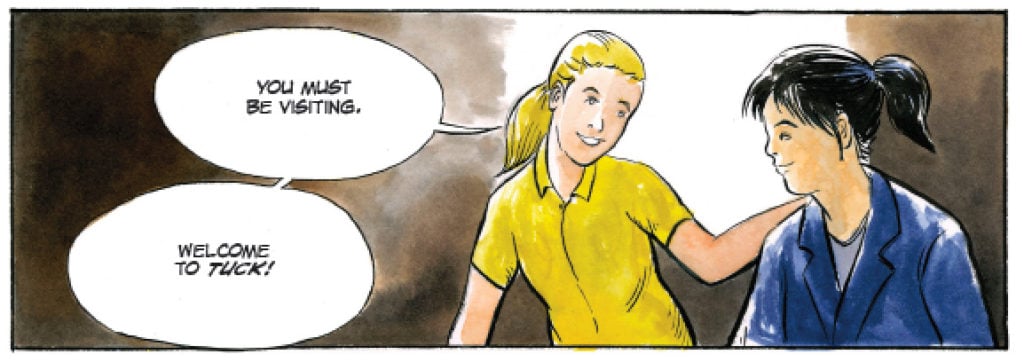
Luckily, you can talk about almost anything in these personal essays. Applicants will often discuss relationships with friends and mentors. Others might talk about the hardships they overcame or difficult experiences. However, there are some things to avoid which we discus here: 4 Mistakes Applicants Make when Writing the Personal Essay .
At the core, your business school personal statement should serve to illuminate who you are as a person and demonstrate that you live according to a code that is in line with your target business school’s own approach to education.
Yaron Dahan on the Importance of Your Story:
Mba application essay #2: the career goals essay.
Business school admissions committees want you to have a good job when you graduate from their MBA program. This is for three reasons:
- Business schools want their employment report to look good! That means that a very high percentage of graduates receive job offers (currently 98.4% at Wharton , for example), and those jobs have high compensation.
- Business schools want you to get not just “a job”, but a job that you really want. Satisfied students who achieved their goals are likely to promote the school to other potential students and speak well of the program.
- Business schools hope for (some of) their graduates to make enough money to eventually become donors.
Even though getting a good job is important, this isn’t everything. In order to stand out from other candidates, the job needs to be a bit inspiring as well. If you are not ambitious enough in outlining your goals and the impact you want to make in your future career, it is possible to come across as a boring candidate who is more or less content to stay in their current position with slightly better pay. Business schools will likely take a hard pass on those applicants. That said, if you are not somewhat realistic with what you want to accomplish, you can end up sounding naïve or unserious.
The goal here is to walk the line between the two. It is your job to convince the school that you have goals which are meaningful, but also grounded in your past experiences and considered enough that your success is assured.
To hear more on this, check out: Career Goals for MBA Essay Writing and More .
Demonstrating School Fit
After you state your goals, you’ll also need to explain how the MBA is a necessary part of achieving those goals. This is a chance to show that not only do you need an MBA , but that the particular program you’re applying to is exactly the right fit with your development needs.
What MBA programs really want to know is that you have done your homework and researched the school in detail. Admissions officers DON’T want to see copy/paste from the course catalogue. It is important to network with schools beforehand and then use what you learned to show that only their institution really has the resources to make your goals a reality.
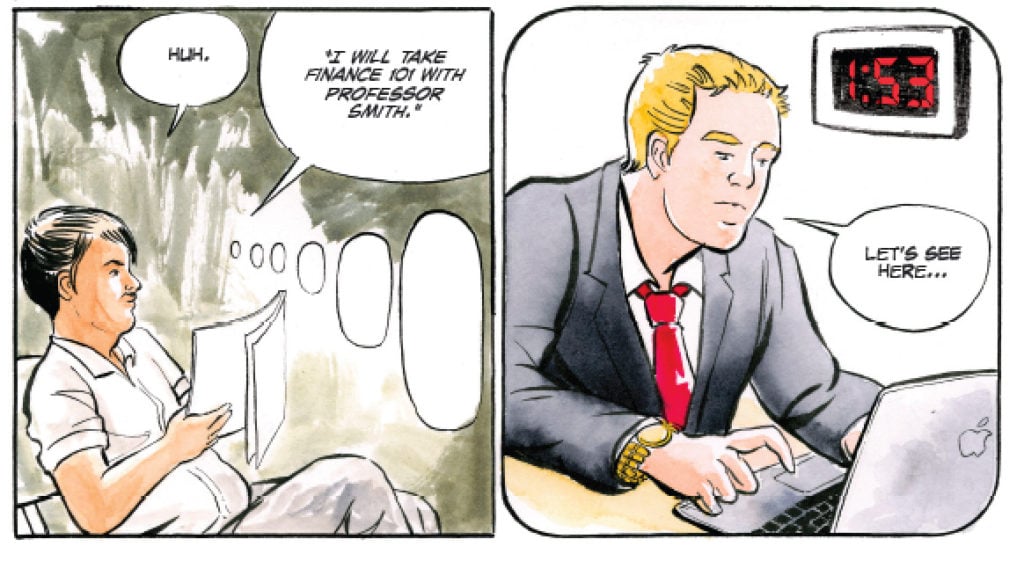
Rebecca Heath Anderson on Researching Career Goals:
Mba application essay #3: school participation essay.
Business schools are selfish! They want to know that you will add something to their institution by attending. Schools rely on students to run many programs, such as professional clubs, and want to know that you will be an active participant in the campus culture. In fact, MBA programs tend to do almost every class and activity in groups.
In order to answer questions like these effectively, you will need to map out the kinds of school-sponsored clubs, conferences, and activities in which you are interested in participating. Consider where you can make helpful contributions to campus life: how can you benefit your classmates as well as the school as a whole?
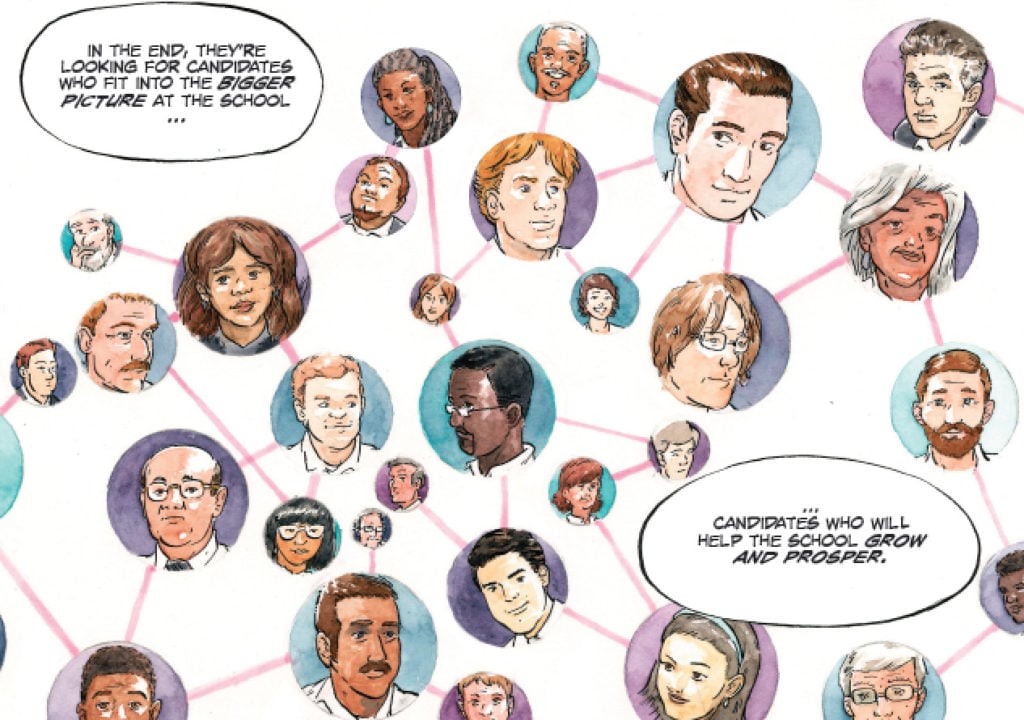
MBA Application Essay #4: Behavioral Essays
An MBA program might ask about your previous experiences, both to gauge whether you’re ready to benefit from the school’s leadership development programs and to know your moral values as a leader. These questions can come in a number of forms.
They might prompt you by saying “Tell us about a time when you led a team” or even “Tell us about a time when you failed.”
What schools really are looking for, in this instance, is some sign that you are self-reflective. They want to understand that you have experienced some leadership setbacks that have made you interested in and prepared to take in the knowledge they have to offer.
The Ultimate MBA Admissions Checklist
Our free, comprehensive checklist covers everything you need to shop for an MBA admissions consultant.
✓ Compare pricing across 35+ MBA admissions consulting firms
✓ Learn why “success rates” are not to be trusted
✓ Find the right service model for your needs
✓ Prep for your consultation calls
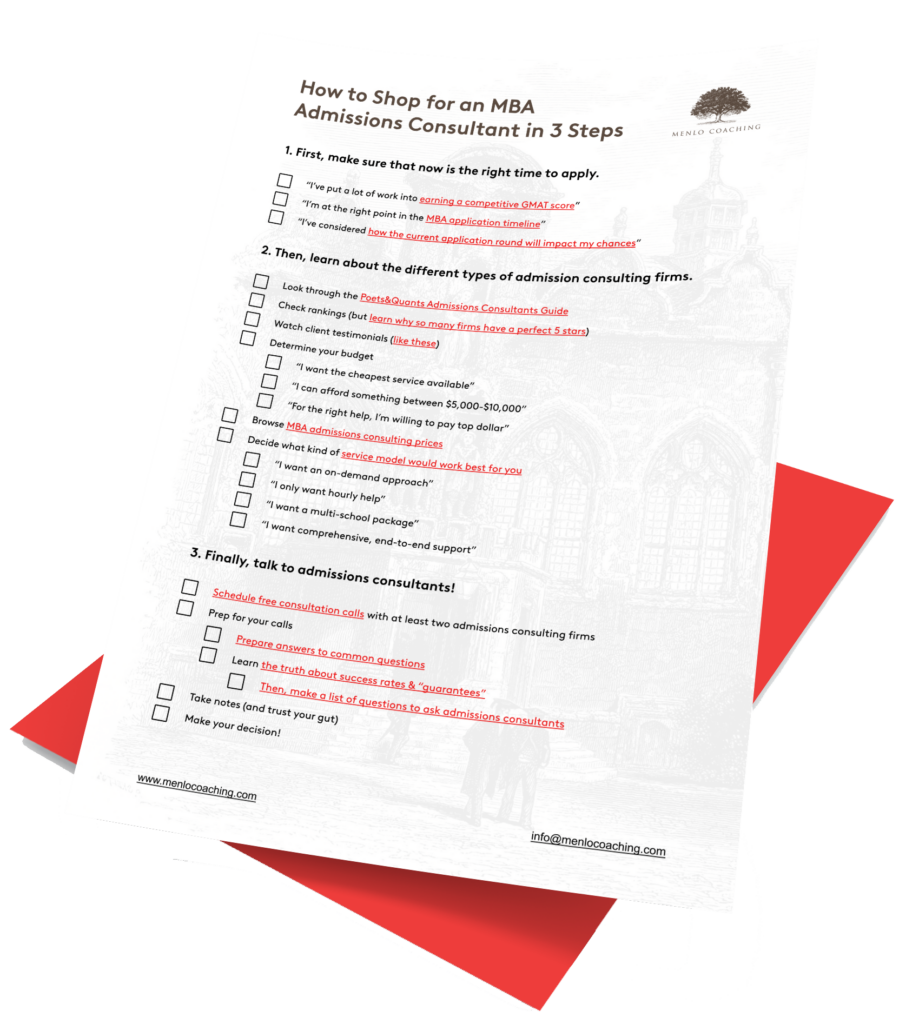
MBA Leadership Essays and How to Write Them
What makes you a strong leader? This can be a difficult question to answer. If you have a lot of leadership experience, your challenge is to tell your story in a compelling and authentic way. And if you don’t have a lot of leadership experience, your task is to be creative about how you answer the prompt, so that you can demonstrate to admissions committees the type of leader you’ll be.
In both cases it’s important not to exaggerate the truth. As soon as you inflate what your actual experience was, you call into question not only your response to the leadership question, but also the truthfulness of the rest of your application.
When shaping a response to the leadership question, you should first think about all of the people you interact with at your job: your manager, colleagues, team members of other departments, office staff, and HR. Consider your role on this team, and what your contributions were.
If you truly had a leadership role, reflect upon your experiences—good and bad—in leading a team. Admissions committees want to see not just your successes, but also your resilience and ability to learn from mistakes. If you weren’t the leader, you can pull from examples of good leadership that you have encountered, and demonstrate how you embody those skills, perhaps by describing non-work-related leadership positions you have held.
Questions to Consider for Leadership Essays
When developing your response to the leadership question, it is important to provide as many specifics as possible—particularly in your earliest drafts. Here are some questions that can help you make your essay convincing and engaging. (You don’t necessarily need to answer all of them; they are just a starting point.)
- What did you do in your role to fix problems?
- How did you handle situations where you had to escalate the issue to management?
- How did you work with people who weren’t members of your team? How did you get what you needed, even from people who couldn’t care less about you?
- If everyone in the office was down, what did you do to perk people up?
- Did you ever informally mentor junior colleagues?
- What fears or problems did you overcome in order to lead successfully?
Writing about Difficulties, Failures and Weaknesses
A common question in MBA essay prompts concerns a failure or setback in your career. These are a few examples of essay prompts that top MBA programs have used to ask about this topic:
- Tell us three setbacks you have faced.
- Describe a situation taken from your personal or professional life where you failed. Discuss what you learned.
- Discuss a time when you faced a challenging interpersonal experience. How did you navigate the situation and what did you learn from it?
These can be unpleasant topics to write about. How should an applicant respond to questions like these?
Pick a Genuine Failure or Weakness
Although it may seem tempting to tell a story in which your own failures are minimized, this type of response is unlikely to be effective, because it does not give you the chance to show self-reflection and personal growth. Moreover, an example where you give a ‘faux failure’ is much less likely to engage the reader than one where you describe a genuine failure of setback.
For example, imagine that you decided to write about an important project that failed due to an error by someone in the team you supervised. You may be tempted to write that “the team member was unable to take the responsibility and should have been monitored more closely.” Although this may be part of the story, a better response would include some reflection on your personal contribution to the problem. Instead of giving the trite insight that you should have monitored the team more carefully, you could write about the shortcomings in your management style and ability to motivate the team. By doing this, you show that you are honest and able to to reflect on failures, and you give yourself the chance to go on to describe what you have learned.
Don’t Turn a Failure Essay Into an Achievement Essay
For instance, in the above example, do not draw the attention away from your failure in managing the team by pointing out how hard you worked on the project yourself. You do not want to give the application committee the impression that you only want to talk about your successes, but are reluctant to reflect on your weaknesses.
Describe What You Learned
End your essay by describing what you have learned from your failure or setback and give an example of how you used your new insight. This is an expected topic even if it is not mentioned in the text of the prompt.
An average essay draws trite lessons. Sticking again with the example above, you might write that “each team member has a unique style and should be motivated accordingly.” A better response includes more details: Why did you fail to connect with the problem team member? Were there warning signs that you could have seen? A great response includes an example where you put your fix into action: you can mention, for instance, how you worked successfully with the same team member on a later project or were able to spot a potential problem early on in another team you managed afterwards.
By taking the courage to write honestly and directly about your failures, and then showing how you have put your learnings into action after the failure, you will have tackled this difficult essay topic successfully.
Now that we have looked at the main categories of MBA essays, let’s talk about one of the persistent myths about the MBA application process: using example essays and templates.
MBA Essay Examples and Templates–A Bad Idea
It is tempting to think that you can model your business school essay off of someone else’s successful essay. People spend time and money searching for “the perfect MBA essay sample” to use as a guide. First, you may hope to avoid the effort of having to write the essay yourself. Second, this is the sort of cargo cult thinking that says: if I copy what a successful applicant did, then I will also be admitted.
The truth of the matter is that sample essays don’t work. People get admitted to MBA programs for many reasons. Menlo Coaching has bought and reviewed several editions of the Harbus Essay Guide , which contains a number of successful HBS essays… and some of the essays therein are absolutely terrible. One essay spent its entire length bragging about the writer’s vast family wealth and all the celebrities the writer knew. Clearly, that applicant did not get in on the merits of their essay-writing skills.
Former HBS director of admissions Dee Leopold famously said that “Applying to Harvard is not an essay writing contest.” As per our MBA applications and admissions guide , people are accepted to MBA programs not on the quality of the writing, but on the quality of the thinking that went into the essay. As a result, “the perfect essay” is actually the one that answers the question based on your perspective and experiences.
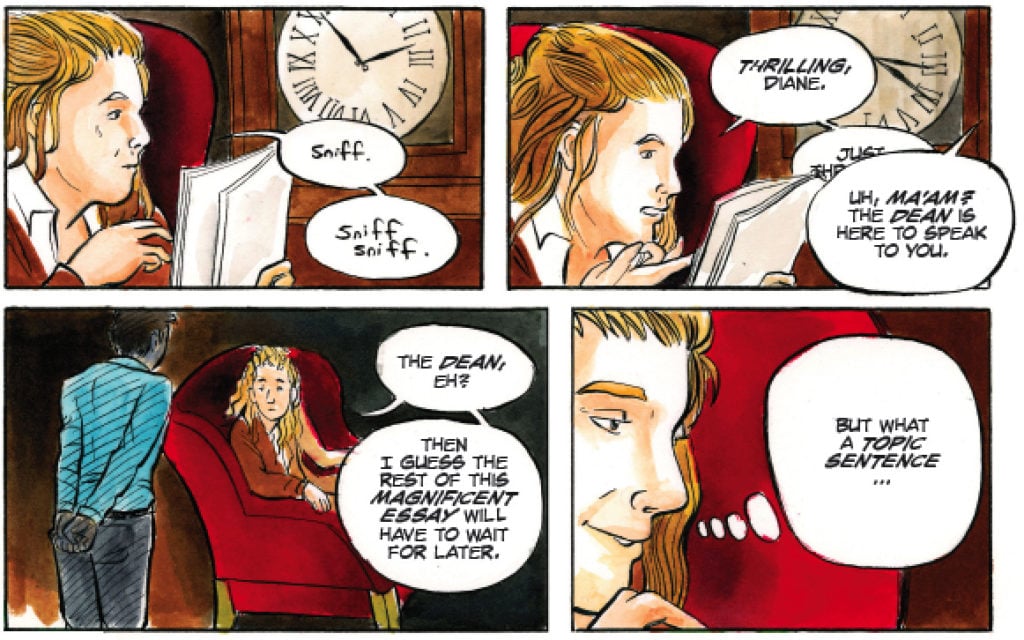
By focusing on these broad categories, you can avoid some of the pitfalls of the essay writing process. Try to keep in mind what your overall MBA story is and don’t get lost in some of the things that don’t matter, such as “sample essays” or figuring out the exact language you are going to use.
Remember, the best application essay is the one that addresses the question in a way that is tied in to your personal experience.
Discover what sets standout MBA application essays apart from the crowd with expert guidance from our experienced MBA admissions consulting team .
Read more on MBA essays
- Taking the Stress out of the MBA Essay Writing Process
- Best strategies for the Harvard MBA Essay
- What Matters Most: Conquering the Stanford GSB Essay A
- Give & Take in the Wharton MBA Essays
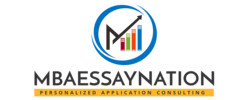
How to Answer “What’s Your Greatest Weakness?” [Real-life examples and practical tips inside]
You’re in the middle of your business school interview, confidently responding to all the questions your interview panel is shooting at you from all directions.
“I’m crushing it!” you think to yourself. On the outside, you’re smiling politely. On the inside, you’re glowing.
One of the interviewers decides it’s time to ask another question. A dreadful question. This a question that makes most people squirm during any interview.
“What’s your greatest weakness?”
You pause. Furiously thinking. Still smiling politely. You can feel your pause stretching eternally.
And then you blurt out something. Incoherent. Banal. Inauthentic.
Your interview panel looks visibly unconvinced. The interviewers start to probe further. Your responses start to become more and more convoluted. Now you feel yourself struggling to explain.
And just like that you know you have messed up what was until then a great interview.
Over the years, I’ve interviewed, both at MBAEssayNation and on the interview panel of ISB, hundreds of applicants. And most struggle to respond well to this question.
What I have done is analyzed the best and the worst responses to this much-dreaded question.
So, by the end of this post, you will walk away with the exact formula to answer this question like a pro.
But first, we need to understand the “Why” behind this question.
Table of Contents
Why is this question important?
3 most important things your interviewers want to know when they ask this question are –
- How self-aware are you?
We all face numerous challenges at our workplace, ranging from conflicts to managing deliverables. And just like we have strengths that help us navigate many of these challenges, there are also weaknesses that prevent us from operating at optimal levels. The interviewers, by asking this question, essentially want to know whether you are aware of any such weaknesses.
- Can you be open and honest about it?
And if you are aware of your weakness, how willing are you to articulate it openly and with honesty?
- Finally, what are you doing to overcome your weakness?
It’s all very well to be aware of your weakness and the fact that you can even be open about it. But what the panel would really like to know is whether you are pursuing any self-improvement opportunities. Because a weakness that’s hindering your effectiveness has to be tackled, right?
Having said that, it’s never easy to confess openly about your weakness.
In fact, 90% of candidates during their B-School interviews, struggle to respond to this question.
So, how should you respond to this question?
You need to show these 2 crucial elements in your response –
- Self-Awareness
- Actions and improvements
Show Self-Awareness
Start by identifying your areas of improvement. 3 sources you can tap into are
Source No #1: Reflect and Introspect
Your past is a great source for identifying your weaknesses. Incidents where you know you could’ve handled things better, but you didn’t or couldn’t. Write them down.
Source No #2: Post MBA goals – from your essays
Chances are you’ve already identified an important area of weakness while writing your post-MBA goals essay.
Source No #3: Feedback from managers, colleagues, or your recommenders
Seek out those at work who know you best. Get their honest feedback on what you can improve further.
(I’d highly recommend you connect with people from your professional network– those who’ve worked with you –rather than trying to get it from family and friends. Because, well, our family and friends think we’re awesome and that’s not going to be of much help, is it?)
Show Actions and Improvements
It’s all about momentum. You can’t just stop saying, “Oh, well, this is my weakness”.
Your interviewers would be interested to know what’re you doing about it.
This means when you respond, it should be all about Show rather than Tell .
Show that you’re working on improving your weakness by outlining the actions you’re taking and the results you’re achieving .
To recap, make sure you’re able to verbalize your self-awareness about a weakness , explain what you’re doing to overcome your weakness, and summarize the progress you’ve made so far .
Weaknesses and Skills
Because your weaknesses are typically linked to skills or capabilities you need at work, it helps to know about the different skill types.
Broadly, there’re 2 categories –
- Hard Skills
- Soft Skills
Hard skills are those foundational blocks you need to do your work competently. Examples of hard skills would be accounting, advanced mathematics, project management, specific software applications and so on, depending on your professional background.
Soft skills are integral to you as a person. For instance, if you communicate well through writing, you have strong written communication skills. Or, if you are someone who has lots of patience and you don’t get easily rattled, then your patience is your soft skill. Some other examples of soft skills are creativity, being organized, and, risk-taking, to list a few.
Soft skills can be further broken down into two subcategories –
- Interpersonal Skills
- Work Ethic Skills
Interpersonal skills help you work with others, be it your team members, managers, vendors, or clients. Examples of weak interpersonal skills include being too blunt with others, not having enough patience, being aggressive, extremely shy, and so on.
Work ethic skills relate to how you are at work. Examples of work ethic skills include taking on too many projects at once, multitasking, delegating tasks, being obsessed with small details, and so on.
Pitfalls to look out for
There are 4 common fallacies that most people fall into when they think about this question.
- Trying too hard to turn a negative into a positive
Saying things like “I am a perfectionist” or “I work too hard” seem banal and inauthentic. Even if you think these are true, stay away from such oft-repeated responses. You’ll get a massive eye-roll from your interviewers.
- Refusing to answer the question
We are all inherently flawed. And we’re all works in progress. That’s just what makes us human. Refusing to acknowledge that there’re areas we can do better is a strong indicator of a lack of self-awareness.
- Revealing a weakness that raises red flags
If you’re a project manager but you say, “My project management skills are my biggest weakness”, that’s a RED flag. Similarly, if you are a people manager, but you say, “I hate managing people, I’d rather be an individual contributor”, that’s again a red flag.
More so, in the context of a business school interview because business schools are in the business of nurturing business leaders who can lead others. (Wow, that’s a lot of “business” there!)
- Revealing weaknesses that you’ve already overcome
Remember your interviewers want to know, “What IS your greatest weakness?” which means they want you to talk about a weakness you haven’t yet overcome but are in the process of overcoming.
Customize for the context
In a business school context, know what business schools look for in their future MBA students. Typically, there’re 5 primary attributes all business schools value the most –
- Team player
- Emotional intelligence
- Analytical thinking
- Respect for diverse perspectives
Make sure the weakness you zoom in on isn’t in major conflict with any of the above attributes.
Examples of Answers That Might Backfire In B-School Interviews
What makes answering this question so tough is that it’s tricky. Sometimes a response that’s authentic may still backfire because your interviewers may perceive it to be in conflict with the key attributes that business schools look for.
“I am incredibly introverted, which makes me wary of sharing my ideas in a group setting or speaking up during team meetings. I feel that I had good intentions, I just wasn’t always comfortable speaking up…”
The reason this response could be a problem is that most business schools follow case study methodology which means at the most basic level, students are expected to openly share their thoughts with their classmates and faculty.
If you’re too shy to speak up in a group setting, you may not be perceived as a good fit because being comfortable with people is an essential attribute for a business leader.
This response could, therefore, be in conflict with the leadership attribute that schools value.
Do you see the challenge with such a response now? Good, let’s see some more examples.
“I go to great lengths to avoid confrontation. This caused me to compromise sometimes on the quality of my work or what I needed to complete a project just to keep the peace. This became a real problem when I became a manager..”
Compromising with the quality of your work thanks to your weakness can result in some serious eyebrow-raising from your interviewers. Your foundational competency is under a shadow which again is in conflict with core attributes such as leadership and emotional intelligence.
“Oftentimes, I can be timid when providing constructive feedback to co-workers or managers, out of fear of hurting someone’s feelings…”
This is also in conflict with attributes such as leadership and emotional intelligence.
“When I’m given a task, I am very goal-oriented and work hard to complete that task. However, when new projects come across my plate, I sometimes jump right into those projects and halt work on the projects I had in progress. Having to jump between tasks, so many times throughout the day hinders my productivity…
This can raise questions about your ability to manage the heavy workload of a rigorous program that an MBA is.
Similarly, a response like “I’m not great at analyzing data or numbers” can be viewed negatively especially if you are applying to a program that has a heavy quant-focused curriculum.
As I mentioned before, be careful about the weakness you want to talk about. Being overly honest without knowing the context could backfire.
Because some of these responses can be double-edged and can go either way – either in your favor or against it – you’ve got to factor in these 4 things –
- Be authentic – The BS detectors of interviewers are finely honed so this one’s a no-brainer
- While you’re being authentic, remember to pick a weakness that is acceptable in a business school context – use the 5 key attributes to guide your choice
- Next, select a weakness that’s relatively minor and can be fixed with the right effort
- And make sure you identify 2-3 weaknesses, just in case, your interviewers ask for more.
All right, now that we’ve understood the “Why” of this question, it’s time to focus on how you can create your response.
Create your response in 3 steps
Use this simple 3I framework
Identify – Identify your weakness
Initiate – Initiate actions to work on your weakness
Improve – Improve your weakness
Identify a “good” weakness
Ask yourself these questions –
- Is there a task or work-related skill that you don’t like to do or don’t do well ?
- Did your supervisor or co-workers ever point out you needed to work on some characteristics ?
- Did you ever have any academic weaknesses ?
Example of identifying a weakness
Weakness Identified – Being overly self-critical
“My greatest weakness is that I sometimes have a hard time letting go of a project. I’m the biggest critic of my work, and I can always find something that needs to be improved or changed.
I observed that even after completing a deliverable, I would mull over what I could have done better. I decided that beyond a certain point, it was unproductive to focus so much attention on what could have been improved or changed.”
Show actions you’ve initiated to work on your weakness
- Enroll in a class
- Get training (internal or external)
- Join groups or workshops
- Sign up for an opportunity at work
- Volunteer for an activity outside of work that uses that skill
- Get help from a mentor or advisor
- Find tools that help correct the weakness
Example of initiating action
To help myself improve in this area, I have started to give myself deadlines for revisions. Within those deadlines, I proactively also seek feedback from my manager and team, and if their feedback confirms that my deliverables meet expectations, I tell myself that my work is good enough to be submitted and that it’s time for me to move on to other deliverables or projects.
Show you are able to make improvements
Ask yourself these questions
- Have you noticed an improvement?
- Did your manager or co-workers notice a change after you put the effort to work on your weakness?
- Can you prove that you’re fixing your weakness with clear results?
Example of improving
“This helps ensure that I’m neither making changes at the last minute nor expending precious time and energy trying to perfect something that’s already good enough.
I’ve also started to take out time to look at my achievements objectively and celebrate those wins.”
Tie all the 3Is together with the STAR method
STAR, if you haven’t come across this method before, stands for Situation, Task, Action, Result.
The beauty of STAR is that it lends a structure to your response, helping you craft your response in a way that makes it easy for the listener to appreciate your story far more effectively.
Now, that we have all the 3 elements from the 3I framework, let’s see how, using STAR, we can combine the elements to form a coherent and importantly, impactful response.
Situation – My greatest weakness is that I sometimes have a hard time letting go of a project. I’m the biggest critic of my work, and I can always find something that needs to be improved or changed.
Task – I observed that even after completing a deliverable, I would mull over what I could have done better. I decided that beyond a certain point, it was unproductive to focus so much attention on what could have been improved or changed.
Action – To help myself improve in this area, I have started to give myself deadlines for revisions. Within those deadlines, I proactively also seek feedback from my manager and team, and if their feedback confirms that my deliverables meet expectations, I tell myself that my work is good enough to be submitted and that it’s time for me to move on to other deliverables or projects.
Result – This helps ensure that I’m neither making changes at the last minute nor expending precious time and energy trying to perfect something that’s already good enough. I’ve also started to take out time to look at my achievements objectively and celebrate those wins.
Some more examples
Weakness identified – delegation.
Situation – I think one area I could work on is my delegation skills. I am always so concerned about everything being done right and on time that I can get stuck in that mentality of “If you want it done right, do it yourself.” Unfortunately, that’s not always possible and I’ve realized that by not delegating I can in fact slow things down.
Task – I learned this recently when I was working with 2 others on a critical cross-functional project. The project had a tight deadline and initially, I sensed my team members were not contributing as much as they should.
So, I took up most of the activities because I didn’t want us to fall behind schedule. But I soon realized that by doing so, I was caught up in the minutiae, I was stressing myself out, and worse, we were all missing out on the opportunity to collaborate effectively by bringing our knowledge and expertise to the table, which was the reason why we were chosen for the project in the first place.
Stepping back helped me see that it wasn’t a lack of willingness but a fear of failure that was holding my team members from bringing their best. And by taking up all the activities, I was in fact, doing a huge disfavor to not just myself but also to them.
Action – I created a plan for all three of us to work on various activities and started to have mini-training sessions to coach my team members on how to work on those activities. Taking the time to clarify tasks, putting necessary support and resources in place, and reviewing progress regularly are some of the steps I took to overcome my reluctance to delegate. Soon, our project started to progress really well. My team members learned new skills and gained confidence each time they successfully completed an activity. Importantly, I got the time to focus on the big picture.
Result – This experience has taught me how crucial it is to delegate, and how delegation can empower people by turning them into problem solvers. I know this is important to both my success and the development of my team. I am also learning that for delegation to succeed, it’s important to put the necessary support and resources in place along with regular progress reviews.
Weakness – Too Direct
Situation – My blunt, straightforward nature has allowed me to succeed over the years as a team manager, because I’m able to get things done efficiently, and people often appreciate my honesty. However, I’ve recognized my bluntness doesn’t always serve my team well when I’m delivering feedback.
Task – When my team members’ work would fall short of my expectations, I’d give direct, critical feedback. But I observed that many team members would take the feedback personally rather than as feedback for their specific deliverables or performance at work. I realized I had to become more tactful in the way I shared feedback, especially when their work didn’t meet my expectations.
Action – To combat this, I’ve worked to develop empathy and deeper relationships with those I manage. To do so, I requested my manager to coach me. I also enrolled in an online leadership management course to develop my ability to deliver feedback.
Result – I’ve realized feedback can be both helpful and kind when delivered the right way. I understand how different individuals respond differently to feedback and that’s why it’s important I keep the process as objective as possible by sharing constructive rather than critical feedback so that, at the end of a feedback discussion, people don’t just become aware about their improvement areas but also feel empowered to work on those areas.
Weakness – Impatience
Situation – My greatest weakness is that I get impatient when projects run past the deadline. I’m a stickler for due dates and I get uncomfortable when work is not completed on time.
Task – I was working with my onshore team to release a much-awaited product by a certain date, setting up daily meetings with them. I ensured that the majority of the user testing was done offshore so that all the activities were completed on schedule. However, just 3 days before the launch, the onshore team decided to delay the release by 2 weeks. This caused me a great deal of consternation, given the effort my team and I had put in. When I spoke to my onshore team, I found out that their senior managers had wanted them to change the UX and when the UX team suddenly became available, they decided to delay the release for the new UX. I have always prided myself on being a problem solver and getting things done on or before schedule. Still, I learned through this experience that it’s important for me to accept that sometimes, in spite of my best efforts, projects will be delayed due to factors outside my control.
Action – To handle such situations where things outside my control could affect my plans, I have started to focus on what I control – I’m paying close attention to how I can improve responding to unforeseen situations, by making an effort to accept that there are different ways of achieving an outcome, in this case launching a product that was useful for users, despite the delays. And I am trying to see things from different individuals’ points of view and the constraints they might be working with.
Result – I am learning that when managing projects with many variables, it’s not always possible to plan everything to the last detail. It’s important to focus on planning rather than remaining too fixated on the plans. And that by being patient and motivational in such situations, I would be able to foster greater efficiency.
Weakness – Too detail-oriented
Situation – My greatest weakness is that I sometimes focus too much on the details of a project and spend too much time analyzing the finer points.
Task – A few months ago, I was asked to create a 3-min video presentation to build awareness about a strategic program I was managing. This was the first time I was creating a presentation in a video format. The plan was to show the video to employees across my company.
I worked hard to capture as many details as possible to ensure that I covered every single aspect in great depth so that the context and messaging were clear to all employees.
When I told my manager how I was struggling to fit in all the information in a 3-min video, my manager helped me understand that for a 3-min video, I should include a high-level view of the program, and by including too many details, I run the risk of overwhelming them.
Action – I refocused my attention on highlighting the high-level view of the program. Initially, I struggled but I made a conscious effort to be stringent in choosing only the most crucial elements.
I constantly reminded myself of the deadline to focus on capturing the most important aspects of my program and was able to limit the video’s length to 3 mins. It was a great success and was well-received.
Result – Overall, the experience has shown that I have some unlearning and learning to do to balance out being too detail-oriented.
I’ve been striving to improve in this area by checking in with myself at regular intervals and articulating the bigger purpose of each task. This helps me re-focus on the bigger picture. It’s forcing me to examine what matters and to let go of what doesn’t.
Additionally, I regularly seek the perspectives of my manager and colleagues, to ensure I’m effectively channeling my detail-oriented side.
Weakness – I could use more experience in…
Choose a hard skill such as finance, analytics, PowerPoint, and so on, and then elaborate
Situation – Because my work has always been more on the creative side and involved minimal quantitative data, I didn’t focus much on data analysis.
Task – However, I recognized data analysis is in fact, quite important to understand how my content is performing on various online channels.
Action – I decided to set up monthly meetings with the SEO manager to discuss analytics and how our posts were performing. On her advice, I took up a Google Analytics course to get better at analyzing web data.
Result – Few months back, I received my Google Analytics certificate, and I make it a point to regularly analyze data related to our blog.
I’ve become much more comfortable with analyzing data through these efforts
Examples of identifying weaknesses in your essays and recommendation letters
One good way is to ask yourself
“What is a weakness that I have and how can this school’s MBA program help me address it?”
Here’s an example of a weakness that one of my clients identified from their post-MBA goals essay
“While managing marketing operations, I recognized I lack adequate understanding of a data-driven approach to derive actionable insights and real-time marketing decisions from complex data streams.
I sought my manager’s help for an opportunity to work with the data science team on a short-term cross-functional project. This gave me a good chance to understand the fundamentals of data analytics. I continue to build my knowledge about space by reading about it in my spare time.
ISB’s courses on marketing analytics will help me gain not just quantitative but also managerial critical thinking skills and consumer behavior knowledge to bridge my knowledge gaps in this area.”
The weakness identified was marketing analytics.
Likewise, your recommendation letters are also another good source you can use to identify weaknesses.
If you don’t have access to your recommendation letters, you can always request your recommender(s) to share their constructive feedback directly with you
And if you have access to your recommendation letters, then look for this question that your recommender would’ve responded to –
Describe the most important piece of constructive feedback you have given the applicant.
Here’s an example of a weakness that one of my clients identified from their recommendation letters –
When we were working together for a distributor review meeting, I noticed that Sumit would sometimes take up many activities, affecting his efficiency.
To manage this issue and given that he managed a large territory, I advised him to adopt a systematic approach to pursue various leads and opportunities. I told him to assess, prioritize, analyze, and then act. I advised him to prioritize his important tasks, ask as many clarifying questions as possible to thoroughly understand the problem at hand, and then outline a solution. For the next few days, Sumit followed my approach and prioritized a number of accounts to work on and we made substantial progress with those accounts.
Since then, he has diligently practiced this approach. One time, he was given the responsibility to develop a new distributor. He was already managing one of the largest distributors along with 45-50 client accounts when he got this additional responsibility. He did an excellent job by focusing only on the 15-20 major accounts and devoted the rest of his time to the training and development of the new distributor.
The weakness identified was multitasking.
Here’s one more example where the weakness identified was a lack of cross-functional knowledge –
“Reena needs more exposure to the various internal business functions. Therefore, I suggested to her to explore the business side, by taking up specialized courses or going for an MBA. This way Reena will be able to contribute even more to our organization if she developed a more detailed understanding of the other functions. She has taken my feedback well and has increased her interactions with colleagues from the other functions in an attempt to understand more about the different functions and their challenges.”
To Conclude
There are many ways, including using a SWOT matrix , to zoom in on weaknesses that you use to talk about during your MBA interviews.
By following the tips and analyzing the examples shared in this post, you can see that if you prepare a complete response you are able to pre-empt further follow-up questions.
And why is that important? Because your interviewers can then move on to hopefully, easier questions 😊
Found this interview guide useful?
I’ve created a comprehensive eBook, “ Basics to Champion: 29 Tips to Build A Compelling Business School Application ” .
It’s a stunning-looking book, packed with valuable insights delivered through lots of easy-to-digest infographics!
Over 3000 people have downloaded it so far, and the feedback has been amazing.
Download your copy of “Basics to Champion: 29 Tips to Build A Compelling Business School Application” here
If you want to know about the most powerful body language tips for your MBA interview, check out our article on
10 Powerful Body Language Tips to Ace Your Business School Interview
About the Author: Deepthi Rajan

Related Posts
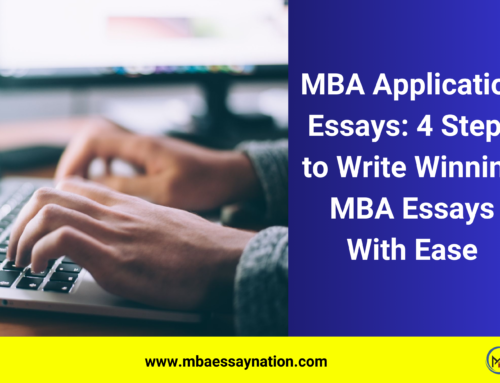
- MBA Application Essay: 4 Steps to Write Winning MBA Essays With Ease

- Ultimate Guide on How to Write ISB Essays 2023-2024
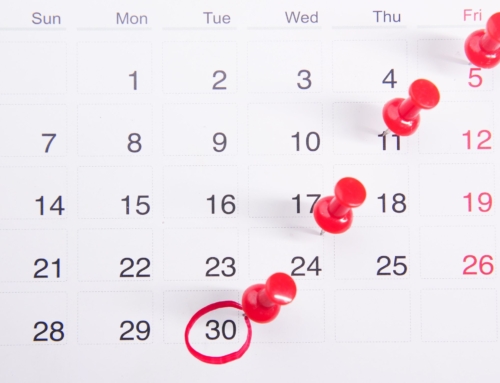
- Business School Application Deadlines Announced in June 2023 (For Full-Time MBA Programs and 2024 Intake)
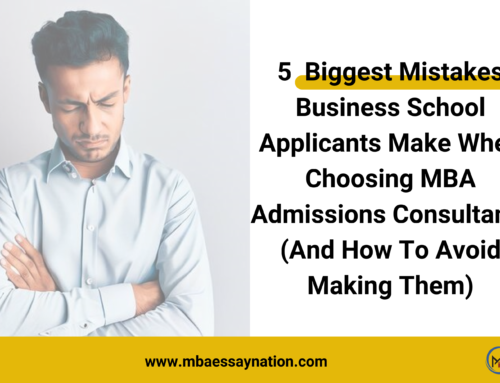
- How To Avoid Mistakes In MBA Admissions Consultant Selection

How to Write Your MBA Letter of Recommendation in under 60 minutes – The Ultimate Guide (With Letter of Recommendation Samples Included)
Recent posts.
- Best GMAT Preparation: 5 Crucial Questions to Ask Yourself Before Quitting Your Job (And 10 Strategies To Succeed)
- Application tips
- Balancing work and GMAT
- Business School
- Business School Selection
- Campus Life
- Client Stories
- Financing MBA
- Indian School of Business
- infographics
- Interview tips
- Letter of Recommendation
- MBA Admission Consultant
- MBA Admissions Interview
- MBA Program Selection
- mbaessaynation
- Recommendation Letters
- Resume tips
- team member
- Toughest interview question
- Toughest MBA Admissions Interview Questions
- Uncategorized

Customized for You
Track Your Progress
Practice Pays
Practice thousands of GMAT questions with top expert solutions.
Identify and improve upon mistakes efficiently using our Error Log.
Get the latest tips and news from our top GMAT professionals.
- it’s free and easy!
Thank you for using the timer! We noticed you are actually not timing your practice. Click the START button first next time you use the timer. There are many benefits to timing your practice , including:
We’ll give you an estimate of your score
We’ll provide personalized question recommendations
Your score will improve and your results will be more realistic

Top MBA Application Tips Guide
How to Finance Your MBA with Little to No Savings?
Crafting an Impactful Resume: Balancing Detail with Brevity
Profile Evaluation and Enrichment
Winning the Battle Against GMAT Verbal - 99 Percentile GMAT Story
Begin your MBA admissions journey with a free 1-1 strategy call
FREE Prospects Evaluation!
Tuck School of Business at Dartmouth Summer Visit Days
Kickstart Your MBA Journey With a Free 1:1 Consultation

02:00 PM EDT
03:00 PM EDT

03:00 PM PDT
04:00 PM PDT

10:00 AM EDT
10:30 AM EDT

10:00 AM IST
11:00 AM IST
10:00 AM PDT
11:00 AM PDT

03:00 PM IST
04:00 PM IST

07:00 PM PDT
08:00 PM PDT

08:00 AM EDT
09:00 AM EDT

12:00 PM PDT
INSEAD Essay 1 (Strengths & Weaknesses): Tips & Winning Essay/ Sample
- GMAT Prep Courses
- MBA Programs
- Build Your Study Plan
- Best GMAT Books
- All the GMAT Tests
- GMAT Focus Tests
- GMAT Verbal
- Error Log Templates
- GMAT Official Guide
- Manhattan Prep
- Target Test Prep
- Experts' Global
- Full Time MBA Rankings
- Part Time MBA Rankings
- Executive MBA Rankings
- International MBA Rankings
- Best App Tips
- Best MBA Books
- Application Reference
- Free Profile Evaluation
Copyright © 2024 GMAT Club
GMAT ® is a registered trademark of the Graduate Management Admission Council ® (GMAC ®). GMAT Club's website has not been reviewed or endorsed by GMAC.
The post is bookmarked successfully

IMAGES
VIDEO
COMMENTS
Strengths & Weaknesses Essay Samples. Many MBA applications include a strengths and weaknesses essay prompt, either directly or indirectly. SBC has former MBA Admissions Officers and top MBA graduates from every top program. If you'd like to speak with one of our Principals about your candidacy, please request a free analysis here.
Mold your actions and experience into a story that defines your role in managing unfavorable situations while addressing your strength and weaknesses essay. Bring the flavor and a personality to your strength and weakness essay. Be Professional in your Strengths for MBA essay. Make sure to remember that you are writing an application to a ...
For example, the INSEAD MBA application includes a strengths and weaknesses essay:"Give a candid description of yourself (who are you as a person), stressing the personal characteristics you feel to be your strengths and weaknesses and the main factors which have influenced your personal development, giving examples when necessary in 500 ...
3. Get Vulnerable. Most MBA admissions essay prompts are written with the goal of getting to know as much about you as possible in the shortest number of words. To do that, you're going to have to share real things from your life — to get personal, intimate, and vulnerable. Do not shy away from this.
Dos and Don'ts for MBA Weakness Essay Dos 1. Identify your real weakness Understanding weakness from an MBA Applications point of view is critical in identifying your real weakness. Stating trivial personal weakness will not help you. Dig deep and find instances in your career where you have not bonded well with the team due to mistrust, lack ...
Vivid examples of weaknesses and strengths can help humanize an MBA application. ... Strictly Business, authored by Stacy Blackman, offers prospective MBA students tips on application essays ...
UPDATE: This article was originally posted on June 6, 2019. It has been updated with new information and tips below. When writing your MBA admissions essay, you want to shine. World-class programs are looking for leaders, visionaries, and reliable sources of future impact, and it is imperative that you show the admissions board that you are one of these candidates.
Sample 1: Leadership-focused MBA application essay. This sample is particularly focused on leadership traits. If your essay is about explaining your leadership quality experience, this sample is right up your alley. The best thing about the essay is that it is written in a simple, engaging, and humorous style. It defines a great experience in a ...
How to Talk About Weaknesses in MBA Essays and Interviews. 1. Don't Take it Personally. Your MBA essay is not your personal diary and your interviewer is not your therapist. While it's a good habit to keep a diary and try therapy for self-improvement, your MBA essay/interview is not the right place for these.
First, MBA admissions committees want to see how you write. Communication skills—including concision, clarity, style, and fluency in English—will be essential to your success in business school. One way of discerning your level of writing ability is to require an original writing sample. In an MBA essay, you have to get your point across ...
Remain personally focused and take responsibility. Don't discuss the blemishes of other people as a way to minimize yours or transfer responsibility AKA blame. Write about traits that are relevant to management. For example, a weakness for chocolate is…a weakness indeed, but it's not directly relevant to business school or your career.
8. Fill your essays with plenty of real-life examples. Specific anecdotes and vivid details make a much greater impact than general claims and broad summaries. 9. Demonstrate a sense of humor or vulnerability. You're a real person, and it's okay to show it! BONUS: Don't Make These MBA Essay Mistakes 1. Write about your high school glory days.
However, they seek qualities such as innovative vision, creativity, teamwork, and thoughtful curiosity in applicants. Alongside implementing other general tips outlined in the article, ensuring that your strengths and weaknesses for MBA application complement each other effectively in your b-school essays is a strategic and wise move.
Writing weakness for MBA essays for oneself is always tricky. But, to avoid any misinterpretation, always try to provide logical weaknesses for MBA applications related to your profession.
This collection of 50 successful HBS and GSB essays, with smart commentary, can be downloaded for $60. They are two of the most selective schools, routinely rejecting nine or more out of every ten applicants. Last year alone, 16,628 candidates applied to both schools; just 1,520 gained an acceptance, a mere 9.1% admit rate.
Remember, your greatest strength is sometimes the flip side of a frustrating weakness. Consider, for example, the analytical and thorough worker who is detail-oriented but has difficulties seeing the big picture in a strategic way. Here are three tips to help you address your weaknesses and strengths in your MBA application.
Samples of MBA essays submitted by real candidates who were accepted to Wharton, Harvard, SINSEAD and other top ranked business schools.
Weakness #1: You have less professional experience than other candidates. For most programs, the average MBA candidate has five or six years of full-time work experience. Many deferred and early career MBA applicants will have less than this. However, there are a few students every year who are admitted directly from their undergraduate degree ...
The 'criticism-weakness-failure' essay is common in MBA admissions essays because it is a test of an applicant's maturity, self-knowledge, honesty, and ability to learn from mistakes. It is, in other words, the biggest indicator of real leadership ability and potential. Sample questions are: Tuck 3. Discuss the most difficult constructive ...
Writing about Difficulties, Failures and Weaknesses. A common question in MBA essay prompts concerns a failure or setback in your career. These are a few examples of essay prompts that top MBA programs have used to ask about this topic: ... People spend time and money searching for "the perfect MBA essay sample" to use as a guide. First ...
Create your response in 3 steps. Identify a "good" weakness. Example of identifying a weakness. Show actions you've initiated to work on your weakness. Example of initiating action. Show you are able to make improvements. Example of improving. Tie all the 3Is together with the STAR method. Some more examples.
Essay 1: Give a candid description of yourself (who are you as a person), stressing the personal characteristics you feel to be your strengths and weaknesses and the main factors which have influenced your personal development, giving examples when necessary (maximum 500 words). Top 5 Tips: 1. Reflect on your (personal) journey and creating a ...
Examples of INSEAD MBA essays submitted by successful ArRINGO applicants who were accepted to INSEAD Business School. Free INSEAD MBA Essay Samples INSEAD, which doesn't belong to any university, is probably the most well-known and prestigious MBA program outside the US. The following MBA essays were written by ARINGO MBA candidates who got ...